It's worth noting that the Chinese Orbital Hypersonic Missile development means the UK is not geographically invulnerable in a conflict scenario with China. It might want to rethink the assumption it can just prod at China in the Pacific from a distance...
— Tom Fowdy (@Tom_Fowdy) October 17, 2021
This is going to be a long article.
I have taken various highlighted articles of interest and strung them together into a unified whole to give the reader the MOST ACCURATE picture concerning what is going on with all this flood of “hate China”, and “War is good” stuff spewing out of the United States today.
Well, if not China, how about invading Russia?
Russia says NO!
And if not invade Russia, then how about invading Australia?
Yes. these people are seriously off their trolleys.
Do you really want to know what is going on? Are the Chinese going to siphon off your “vital bodily” fluids and gobble up the world? And why are you forced to endure lies and distortions in favor of war?
It is a distraction, as MM as repeatedly stated, or is it something more?
What is going on?
Introduction
Ok, I’m minding my own business. I have just made myself a cup of coffee and went to my study and fired up both of my computers. (One, my active computer is running Lunix and I am doing driver installation activities. While the other is my “old computer” and it is limping along with a malware saturated Chinese OS.)
I fire up those “puppies” (computers) and “right off the bat“, this is what I see…

The War Is on With China | GOPUSA
With each passing week, it looks like World War III — between America and China — is coming sooner than we think. It’s not going to be fought with bullets or aircraft carriers, although the Chinese are building up their military in an aggressive and threatening way. This will more likely be an all-out economic war for global supremacy. The yuan versus the dollar. The Nasdaq versus the Shanghai Stock Exchange. Meanwhile, America is asleep at the switch — at least, the Biden administration is. This is the worst possible time to be raising tax rates on American companies (Our business tax rates would be higher than China’s under President Joe Biden’s plan!), dismantling American energy (at a time when China is running 1,000 dirty coal plants with dozens more in construction), and running up the national debt (with China a major purchaser of the bonds). Love Donald Trump or hate him, he was a president who put America first and recognized the predatory nature of the Chinese regime. He got tough with President Xi Jinping and overturned one-sided trade deals. His strategy was to do what former President Ronald Reagan did to win the Cold War: Make America tremendously prosperous by building up our strategic industries in a way that the Soviet Union or China couldn’t compete with. The danger is that we now have a president in Biden who thinks that climate change is a bigger threat to the world than the Maoists in Beijing. And make no mistake about it; the communists are back in charge in China. Jinping has basically announced himself to be president for life, as democracy and free elections fly out the window. China is also sprinting back to command and control fascist government and industry “cooperation.” That’s a model that will eventually implode, but as we learned from the Soviet menace, they can do a lot of damage to peace and prosperity in the meantime. It’s no accident that China’s economy and stock market are faltering. In the last year, as the U.S. stock market has risen by about 20% (thanks to Operation Warp Speed), China’s Shanghai stock market went down 15%. They are sprinting toward socialism faster than we are… for now. The Chinese stock market jitters reflect global investors’ irritation with the more frequent political interventions in business affairs. As Foreign Affairs magazine recently put it regarding these iron-fisted interferences into the business activities of its largest companies: “Xi has placed China on a risky trajectory, one that threatens the (free market) achievements of his predecessors.” In short, events of recent months both militarily and economically confirm that the modern Maoists are firmly entrenched in Beijing, and capitalism is losing. Jinping’s administration simply doesn’t get what George H.W. Bush once so eloquently described as “that freedom thing.” Militant social controls and restraints on individual liberty are now being matched with economic controls on Chinese megacorporations that are trying to vie for industry supremacy in technology, biology, manufacturing and transportation. Is all of this reminiscent of Japan circa 1939? What is the Biden administration’s response to these threats? The massive $5 trillion spend, tax and borrow bill he is steamrolling through Congress will impair American economic supremacy almost overnight. Under Trump, tax rate reductions led to a $1 trillion infusion of capital from around the world, coming back to these shores to build up our industrial might. Biden’s tax policies will have the reverse effect: deindustrialization. We are, as a nation, now back to importing tens of billions of dollars of energy from OPEC and Russia instead of selling the hundreds of years’ worth of oil, gas and coal. Do the progressives who now run Washington really believe we are going to defeat the rising Communist China threat by building windmills? Do they think that redistributing income and wealth makes more sense than creating it? Will we be in any economic shape to repel China’s militaristic advances in the South China Sea, in India, in Africa and perhaps on to the shores of Taiwan with the policies in place in Washington today? Doubtful. The war with China is on. Right now, only one country is fighting — China. Let’s not let another Afghanistan catastrophe happen in Asia.
…
Sigh.
Right. Rigggghhhhht.
Only China is fighting. China’s economy is collapsing. China is taking over American industries with an iron-fist. The failures of America are all China’s fault. Yada. Yada. Yada.
Sure.

In your dreams.
In my nightmares, but in these assholes dreams.
They haven’t a clue as to what they are dealing with. These money grabbing, politically sensitive nitwits are leading the United States towards certain destruction. But you all have heard that before.
Right?
Notice how the author weaves politics with the global economic weight of the rest of the world. Nope you dunder-heads. Politics is meaningless, useless and dangerous when mixed with anything outside of it’s natural venue. Or haven’t you ever tried to discuss politics at the Thanksgiving table with strangers? Huh?
China doesn’t play politics.
China plays HARD-BALL.
Be careful for what you wish for. If China really wanted to fight instead of the dance-moves that it is currently engaged in, it would gallop at full “break neck” speed, and Lordy! You do not want to be in their way.
I’ll tell you what.
Understanding the world 101
I constantly tell my interns that Business = Relationships.
And it is very, very true. The most successful businesses have been built upon strong foundational relationships.
In a like way, Politics = Money.
When anyone is so enraptured about Politics you know that they are talking about money. And in particular, how THEY get money, keep money, acquire money, save money or manipulate money.
With this in mind, we can see that the author of the previous article was mixing Geo-Politics with China. And that tells us all we need to know. All this hate-China narrative is all about money.
And all this Drumbeat of hate-China is all about…
Money!
And what to they wish for?
War!
Idiotic fools.
If you pay any attention to history, wars ALWAYS, and without exception, originate from the wealthy class. In general, the wealthier the individuals are, the more expansive, brutal and awful the wars they generate, will be.
So who is driving the narrative for the USA to fight China in a war?
Meet the billionaires that got us to this point
From HERE. All credit to the author.
At MintPress, we have been at the forefront of exposing how Middle Eastern dictatorships and weapons contractors have been funneling money into think tanks and political action committees, keeping up a steady drumbeat for more war and conflict around the world. Yet one little-discussed nation that punches well above its weight in spending cash in Washington is Taiwan.
By studying Taiwan’s financial reports, MintPress has ascertained that the semi-autonomous island of 23 million people has, in recent years, given out millions of dollars to many of the largest and most influential think tanks in the United States. This has coincided with a strong upsurge in anti-China rhetoric in Washington, with report after report warning of China’s economic rise and demanding that the U.S. intervene more in China-Taiwan disputes.
These think tanks are filled with prominent figures from both parties and have the ears of the most powerful politicians in Washington. It is in their offices that specialists draw up papers and incubate ideas that become tomorrow’s policies. They also churn out experts who appear in agenda-setting media, helping to shape and control the public debate on political and economic issues.
Twenty years ago, a group of neoconservative think tanks like the Project for a New American Century, funded by foreign governments and weapons manufacturers, used their power to push for disastrous wars in the Middle East. Now, a new set of think tanks, staffed with many of those same experts who provided the intellectual basis for those invasions, is working hard to convince Americans that there is a new existential threat: China.
A fistful of dollars
In 2019, the Taipei Economic and Cultural Representative Office in the United States (TECRO) — for all intents and purposes, the Taiwanese embassy — donated between $250,000 and $499,999 to the Brookings Institute, commonly identified as the world’s most influential think tank. Taiwanese tech companies have also given large sums to the organization. In turn, Brookings Institute staff like Richard C. Bush (a former member of the National Intelligence Council and a U.S. national intelligence officer for East Asia) vociferously champion the cause of Taiwanese nationalists and routinely condemn Beijing’s attempts to bring the island more closely under control.

Last week, Brookings held an event called “Taiwan’s quest for security and the good life,” which began with the statement that “Taiwan is rightly praised for its democracy. Elections are free, fair, and competitive; civil and political rights are protected.” It went on to warn that the “most consequential” challenge to the island’s liberty and prosperity is “China’s ambition to end Taiwan’s separate existence.”
According to another organization’s latest financial disclosure, TECRO also gave a six-figure sum to the Atlantic Council, a think tank closely associated with NATO. It is unclear what the Atlantic Council did with that money, but what is certain is that they gave a senior fellowship to Chang-Ching Tu, an academic employed by the Taiwanese military to teach at the country’s National Defense University. In turn, Tu authored Atlantic Council reports describing his country as a “champion [of] global democracy,” and stating that “democracy, freedom and human rights are Taiwan’s core values.” A menacing China, however, is increasing its military threats, so Taiwan must “accelerate its deterrence forces and strengthen its self-defense capabilities.” Thus he advises that the U.S. must work far more closely with Taiwan’s military, conducting joint exercises and moving towards a more formal military alliance. In 2020, the U.S. sold $5.9 billion worth of arms to the island, making it the fifth-largest recipient of American weaponry last year.
Other Taiwan-employed academics have chided the West on the pages of the Council’s website for its insufficient zeal in “deter[ring] Chinese aggression” against the island. “A decision by the United States to back down” — wrote Philip Anstrén, a Swedish recipient of a fellowship from the Taiwanese Ministry of Foreign Affairs — “could damage the credibility of U.S. defense guarantees and signal that Washington’s will to defend its allies is weak.” Anstrén also insisted that “Europe’s future is on the line in the Taiwan Strait.” “Western democratic nations have moral obligations vis-à-vis Taiwan,” he added on his blog, “and Western democracies have a duty to ensure that [Taiwan] not only survives but also thrives.”
The reason this is important is that the Atlantic Council is an enormously influential think tank. Its board of directors is a who’s-who in foreign policy statecraft, featuring no fewer than seven former CIA directors. Also on the board are many of the architects of the wars in Iraq and Afghanistan, including Colin Powell, Condoleezza Rice and James Baker. When organizations like this begin beating the war drums, everybody should take note.
Perhaps the most strongly anti-Beijing think tank in Washington is the conservative Hudson Institute, an organization frequented by many of the Republican Party’s most influential figures, including former Secretary of State Mike Pompeo, former Vice-President Mike Pence and Arkansas Senator Tom Cotton. The words “China” or “Chinese” appear 137 times in Hudson’s latest annual report, so focused on the Asian nation are they. Indeed, reading their output, it often appears they care about little else but ramping up tensions with Beijing, condemning it for its treatment of Hong Kong, Taiwan and Uyghur Muslims, and warning of the economic and military threat of a rising China.

Over the years, Hudson’s efforts have been sustained by huge donations from TECRO. The Hudson Institute does not disclose the exact donations any sources give, but their annual reports show that TECRO has been on the highest tier of donors ($100,000+) every year since they began divulging their sponsors in 2015. In February, Hudson Senior Fellow Thomas J. Duesterberg wrote an op-ed for Forbes entitled “The Economic Case for Prioritizing a U.S.-Taiwan Free Trade Agreement,” in which he extolled Taiwan’s economy as modern and dynamic and portrayed securing closer economic ties with it as a no-brainer. Hudson employees have also traveled to Taiwan to meet and hold events with leading foreign ministry officials there.
The Hudson Institute also recently partnered with the more liberal Center for American Progress (CAP) to host an event with Taiwanese President Tsai Ing-wen, who took the opportunity to make a great number of inflammatory statements about the “ever more challenging threats to free and democratic societies” China poses; applaud the U.S.’ actions on Hong Kong; and talk about how Taiwan honors and celebrates those who died at the Tiananmen Square massacre. TECRO gave the CAP between $50,000 and $100,000 last year.
It is the Center for Strategic and International Studies (CSIS), however, that appears to receive the most Taiwanese money. According to its donor list, Taiwan gives as much money to it as the United States does — at least $500,000 last year alone. Yet all of the Taiwanese government money is put into CSIS’s regional studies (i.e., Asia) program. Like Hudson employees, the CSIS calls for a free trade agreement with Taiwan and has lavished praise on the nation for its approach to tackling disinformation, describing it as a “thriving democracy and a cultural powerhouse.” Although acknowledging that the reports were paid for by TECRO, CSIS insists that “all opinions expressed herein should be understood to be solely those of the authors and are not influenced in any way by any donation.” In December, the CSIS also held a debate suggesting that “[w]ithin the next five years, China will use significant military force against a country on its periphery,” exploring what the U.S. response to such an action should be.
Like the Atlantic Council, the CSIS organization is stacked with senior officials from the national security state. Its president and CEO is former Deputy Secretary of Defense John Hamre, while Henry Kissinger — former secretary of state and the architect of the Vietnam War — also serves on its council.
The CSIS accepts money from the Global Taiwan Institute and the Taiwan Foundation for Democracy (TFD) as well. The former is a rather shadowy pro-Taiwanese group that appears not to disclose its funding sources. The latter is a government-funded organization headed by former Taiwanese President You Si-kun. Every year, the TFD publishes a human rights report on China, the latest of which claims that “the Chinese Communist Party knows no bounds when it comes to committing serious human rights violations” — accusing it of “taking the initiative” in “promoting a new Cold War over the issue of human rights” and trying to “replace the universal standing of human rights values around the world.” Ultimately, the report concludes, China “constitutes a major challenge to democracy and freedom in the world.”

The TFD has also been a major funder of the Victims of Communism Memorial Foundation, a far-right pressure group that insists that Communism has killed over 100 million people worldwide. Last year, the Victims of Communism Memorial Foundation added all global COVID-19 fatalities to the list of Communist-caused deaths on the basis that the virus started in China. The Foundation also employs Adrian Zenz, a German evangelical theologian who is the unlikely source of many of the most controversial and contested claims about Chinese repression in Xinjiang province.
In the past 12 months, TECRO has also donated six-figure sums to many other prominent think tanks, including the German Marshall Fund of the United States, the Center for a New American Security, and the Carnegie Endowment for International Peace. MintPress reached out to a number of these think tanks for comment but has not received any response.
“It would be naive to believe that Taiwan’s funding of think tanks is not pushing them to take pro-Taiwan or anti-China positions,” Ben Freeman, the director of the Foreign Influence Transparency Initiative at the Center for International Policy, told MintPress, adding:
After all, why would Taiwan keep funding think tanks that are critical of Taiwan? There’s a Darwinian element to foreign funding of think tanks that pushes foreign government funding to think tanks that write what that foreign government wants them to write. Taiwan is no exception to this rule.”
TECRO is not just sponsoring American think tanks, however. It has also given funds to the Australian Strategic Policy Institute (ASPI), a hawkish and controversial group described as “the think tank behind Australia’s changing view of China.” The country’s former ambassador in Beijing described ASPI as “the architect of the China threat theory in Australia” while Senator Kim Carr of Victoria denounced them as working hand-in-hand with Washington to push “a new Cold War with China.” ASPI was behind Twitter’s decision last year to purge more than 170,000 accounts sympathetic to Beijing from its platform.
“We must be ready to fight our corner as Taiwan tensions rise,” ASPI wrote in January, having previously castigated the West for being “no longer willing to defend Taiwan.”
ASPI — like Brookings, the Atlantic Council and others — are directly funded by weapons manufacturers, all of whom also have a direct interest in promoting more wars around the world. Thus, if the public is not careful, certain special interests might be helping move the United States towards yet another international conflict.
While the situation outlined above is concerning enough, the Foreign Influence Transparency Initiative’s research has shown that around one-third of think tanks still do not provide any information whatsoever about their funding, and very few are completely open about their finances. Freeman maintains that, while there is nothing inherently wrong with foreign governments funding Western think tanks, the lack of transparency is seriously problematic, explaining:
This raises a lot of questions about the work they’re doing. Are their secret funders saying what the think tank can do in a pay-for-play scheme? Are the funders buying the think tanks silence on sensitive issues? Without knowing the think tank’s funders, policymakers and the public have no idea if the think tank’s work is objective research or simply the talking points of a foreign government.”
Freeman’s study of the Taiwanese lobby found that seven organizations registered as Taiwan’s foreign agents in the U.S. Those organizations, in turn, contacted 476 Members of Congress (including almost 90% of the House), as well as five congressional committees. House Speaker Nancy Pelosi was their most frequent contact, the Californian being contacted 34 times by Taiwanese agents. Pelosi has been a great supporter of Taiwanese nationalists, successfully promoting pro-Taiwan legislation and proudly announcing that the U.S. “stands with Taiwan.”
Foreign agents working on behalf of Taiwan also made 143 political contributions to U.S. politicians, with former Alabama Senator Doug Jones the lead recipient (Pelosi was third).
Losing China, regaining Taiwan?
The reports listed above understand the dispute as purely a matter of Chinese belligerence against Taiwan and certainly do not consider U.S. military actions in the South China Sea as aggressive in themselves. That is because the world of think tanks and war planners sees the United States as owning the planet and having a remit to act anywhere on the globe at any time.
To this day, U.S. planners bemoan the “loss of China” in 1949 (a phrase that presupposes the United States owned the country). After a long and bloody Second World War, Communist resistance forces under Mao Tse-tung managed to both expel the Japanese occupation and overcome the U.S.-backed Kuomintang (nationalist) force led by Chang Kai-shek. The United States actually invaded China in 1945, with 50,000 troops working with the Kuomintang and even Japanese forces in an attempt to suppress the Communists. However, by 1949, Mao’s army was victorious; the United States evacuated and Chang Kai-shek retreated to Taiwan.
The Kuomintang ruled the island for 40 years as a one-party state and remains one of the two major political groups to this day. The war between the Communists and the Kuomintang never formally ended, and Taiwan has now lived through 70 years of estrangement from the mainland. Polls show a majority of Taiwanese now favor full independence, although a large majority still personally identify as Chinese.
While many Taiwanese welcome an increased U.S. presence in the region, Beijing certainly does not. In 2012, President Barack Obama announced the U.S.’ new “Pivot to Asia” strategy, moving forces from the Middle East towards China. Today, over 400 American military bases encircle it.
In recent months, the United States has also taken a number of provocative military actions on China’s doorstep. In July, it conducted naval exercises in the South China Sea, with warships and naval aircraft spotted just 41 nautical miles from the coastal megacity of Shanghai, intent on probing China’s coastal defenses. And in December, it flew nuclear bombers over Chinese vessels close to Hainan Island. Earlier this year, the head of Strategic Command made his intentions clear, stating that there was a “very real possibility” of war against China over a regional conflict like Taiwan. China, for its part, has also increased its forces in the region, carrying out military exercises and staking claims to a number of disputed islands.
A new Director of National Intelligence (DNI) report notes that China is the U.S.’ “unparalleled priority,” claiming that Beijing is making a “push for global power.” “We expect that friction will grow as Beijing steps up attempts to portray Taipei as internationally isolated and dependent on the mainland for economic prosperity, and as China continues to increase military activity around the island,” it concludes.
In an effort to stop this, Washington has recruited allies into the conflict. Australian media are reporting that their military is currently readying for war in an effort to force China to back down, while last week President Joe Biden met with Japanese Prime Minister Yoshihide Suga to shore up a united front against Beijing vis-a-vis Taiwan.
In February, the Atlantic Council penned an anonymous 26,000-word report advising Biden to draw a number of red lines around China, beyond which a response — presumably military — is necessary. These included any military action or even a cyber attack against Taiwan. Any backing down from this stance, the council states, would result in national “humiliation” for the United States.
Perhaps most notably, however, the report also envisages what a successful American China policy would look like by 2050:
[T]he United States and its major allies continue to dominate the regional and global balance of power across all the major indices of power;… [and head of state Xi Jinping] has been replaced by a more moderate party leadership; and … the Chinese people themselves have come to question and challenge the Communist Party’s century-long proposition that China’s ancient civilization is forever destined to an authoritarian future.”
In other words, that China has been broken and that some sort of regime change has occurred.
Throughout all this, the United States has been careful to stress that it still does not recognize Taiwan and that their relationship is entirely “unofficial,” despite claiming that its commitment to the island remains “rock solid.” Indeed, only 14 countries formally recognize Taiwan, the largest and most powerful of which is Paraguay.
Along with a military conflict brewing, Washington has also been prosecuting an information and trade war against China on the world stage. Attempts to block the rise of major Chinese companies like Huawei, TikTok and Xiaomi are examples of this. Others in Washington have advised the Pentagon to carry out an under-the-table culture war against Beijing. This would include commissioning “Taiwanese Tom Clancy” novels that would “weaponize” China’s one-child policy against it, bombarding citizens with stories about how their only children will die in a war over Taiwan.
Republicans and Democrats constantly accuse each other of being in President Xi’s pocket, attempting to outdo each other in their jingoistic fervor. Last year, Florida Senator Rick Scott went so far as to announce that every Chinese national in the U.S. was a Communist spy and should be treated with extreme suspicion. As a result, the American public’s view of China has crashed to an all-time low. Only three years ago, the majority of Americans held a positive opinion of China. But today, that number is only 20%. Asian-Americans of all backgrounds have reported a rise in hate crimes against them.
Cash rules everything around me
How much of the United States’ aggressive stance towards China can be attributed to Taiwanese money influencing politics? It is difficult to say. Certainly, the United States has its own policy goals in East Asia outside of Taiwan. But Freeman believes that the answer is not zero. The Taiwan lobby “absolutely has an impact on U.S. foreign policy,” he said, adding:
At one level, it creates an echo-chamber in D.C. that makes it taboo to question U.S. military ties with Taiwan. While I, personally, think there are good strategic reasons for the U.S. to support this democratic ally — and it’s clearly in Taiwan’s interest to keep the U.S. fully entangled in their security — it’s troubling that the D.C. policy community can’t have an honest conversation about what U.S. interests are. But, Taiwan’s lobby in D.C. and their funding of think tanks both work to stifle this conversation and, frankly, they’ve been highly effective.”
Other national lobbies affect U.S. policy. The Cuban lobby helps ensure that the American stance towards its southern neighbor remains as antagonistic as possible. Meanwhile, the Israel lobby helps ensure continuing U.S. support for Israeli actions in the Middle East. Yet more ominously with Taiwan, its representatives are helping push the U.S. closer towards a confrontation with a nuclear power.
While Taiwanese money appears to have convinced many in Washington, it is doubtful that ordinary Americans will be willing to risk a war over an island barely larger than Hawaii, only 80 miles off the coast of mainland China.
…
Who specifically are these Taiwan billionaires?
From Forbes HERE.
| Rank | Name | Net Worth | Age | Source | |
|---|---|---|---|---|---|
 |
#1 | Zhang Congyuan | $13.8 B | 73 | shoes |
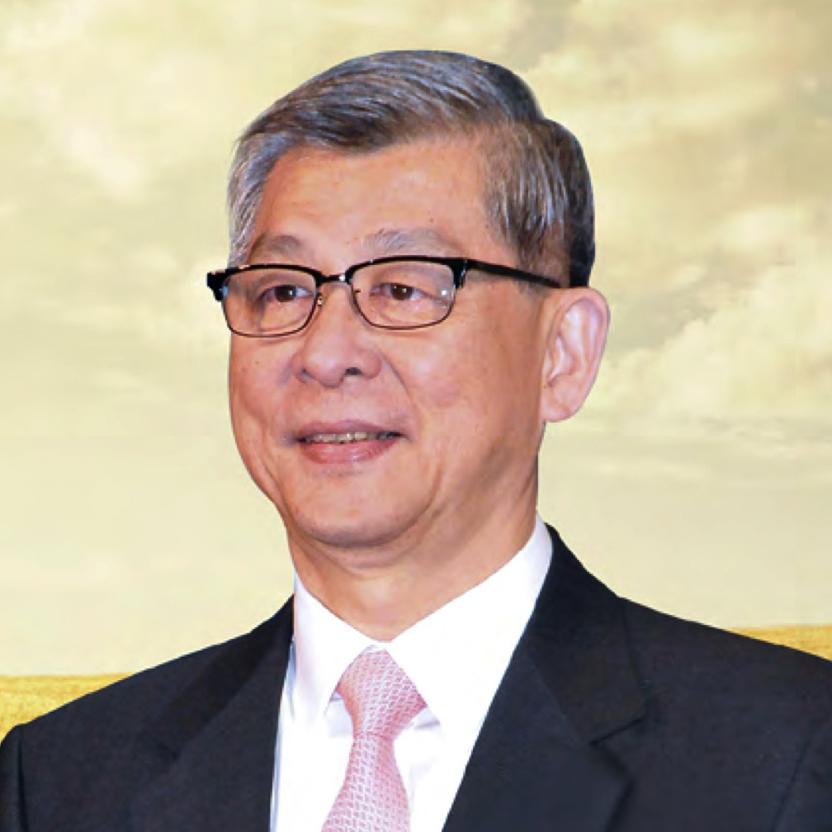 |
#2 | Tsai Hong-tu & Cheng-ta | $9.2 B | – | finance |
 |
#3 | Daniel & Richard Tsai | $7.9 B | – | finance |
 |
#4 | Wei Ing-chou, Ying-chiao, Yin-chun & Yin-heng | $7.8 B | – | food |
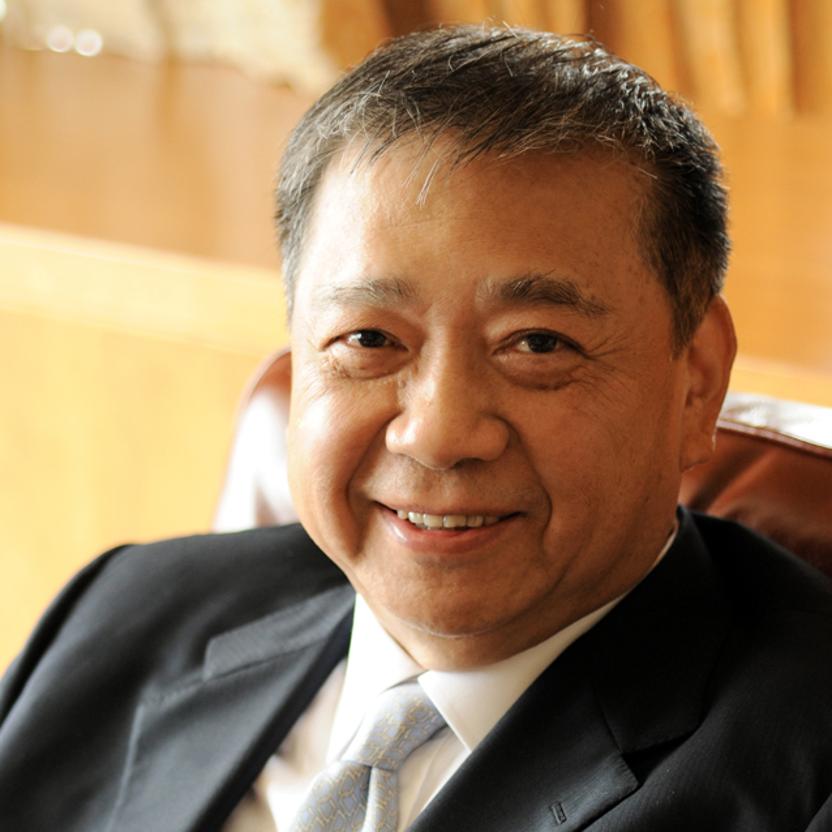 |
#5 | Jason & Richard Chang | $7.2 B | – | semiconductors |
 |
#6 | Terry Gou | $7.1 B | 71 | electronics |
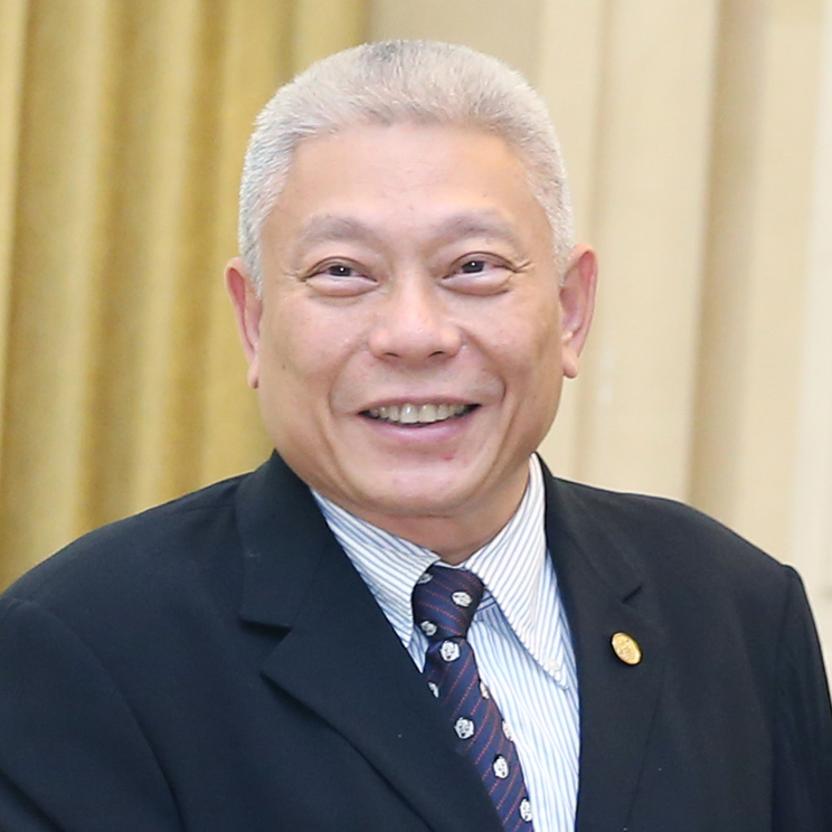 |
#7 | Tsai Eng-meng | $6.1 B | 64 | food, beverages |
 |
#8 | Barry Lam | $5.8 B | 72 | electronics |
 |
#9 | Pierre Chen | $5 B | 65 | electronics |
 |
#10 | Lin Shu-hong | $4.8 B | 93 | petrochemicals |
 |
#11 | Samuel Yin | $4.3 B | 71 | retail |
 |
#12 | Andre Koo, Sr. | $3.8 B | 54 | financial services |
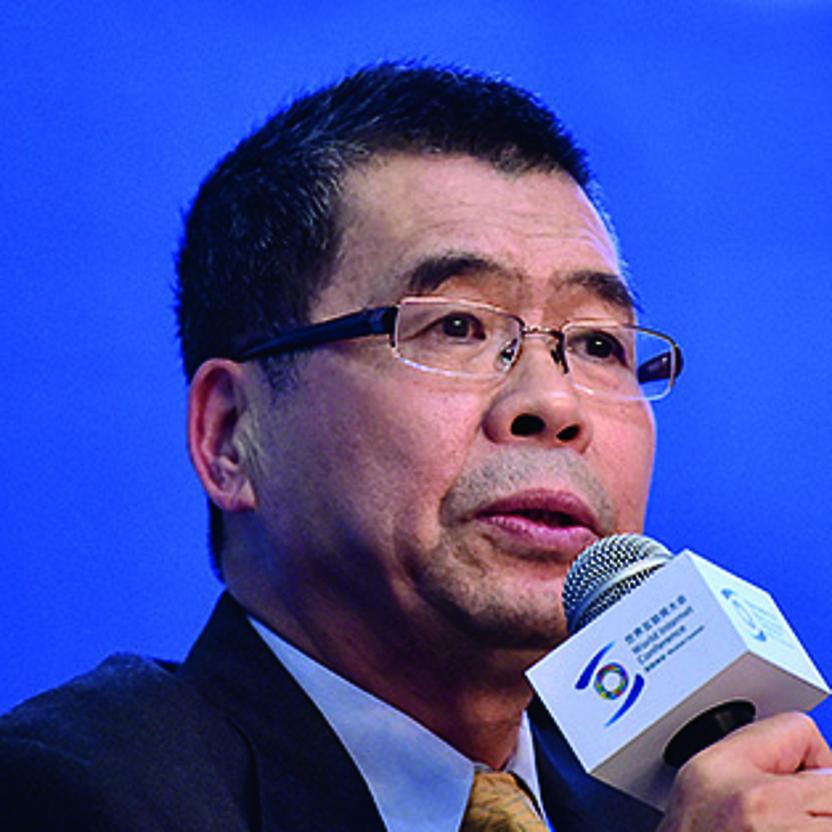 |
#13 | Tsai Ming-kai | $3.3 B | 71 | semiconductors |
 |
#14 | Rudy Ma | $3.25 B | 81 | finance |
 |
#15 | Morris Chang | $2.8 B | 90 | semiconductors |
 |
#16 | Douglas Hsu | $2.7 B | 79 | diversified |
 |
#17 | Tseng Cheng & Sing-ai | $2.65 B | – | petrochemicals |
 |
#18 | Lin Ming-hsiung | $2.5 B | 71 | supermarkets |
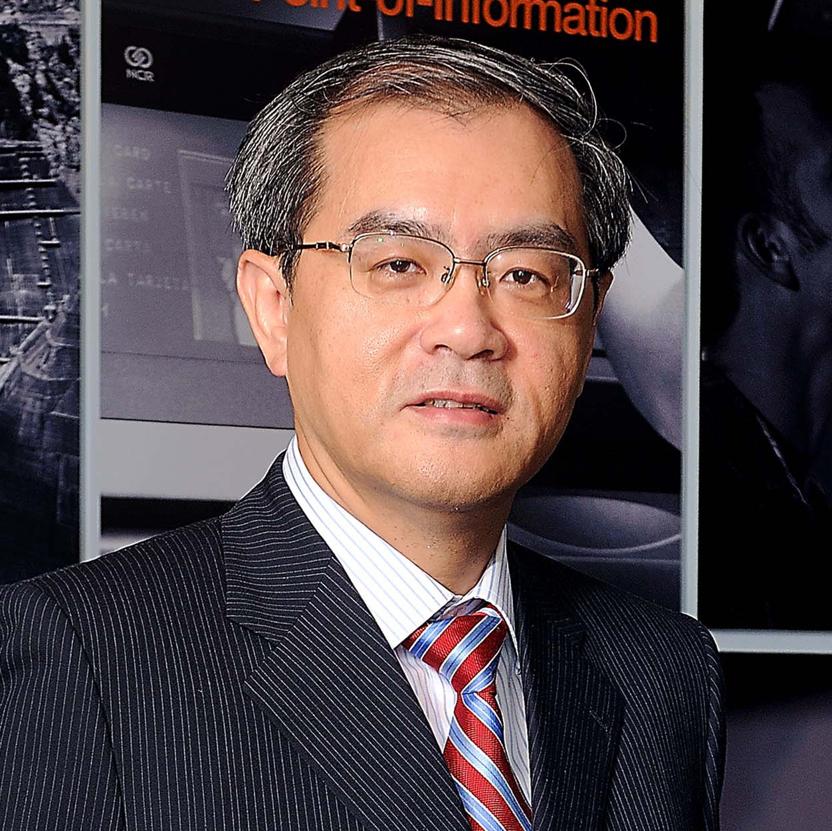 |
#19 | K.C. Liu | $2.47 B | 67 | manufacturing |
 |
#20 | Bruce Cheng | $2.42 B | 85 | electronics |
 |
#21 | T.Y. Tsai | $2.4 B | 68 | finance |
 |
#22 | Wang Chou-hsiong | $2.23 B | 80 | footwear |
 |
#23 | Lin Chen-hai | $2.2 B | 74 | real estate |
 |
#24 | Scott Lin | $2.05 B | 88 | optical components |
 |
#25 | Chin Jong Hwa | $2 B | 63 | auto parts |
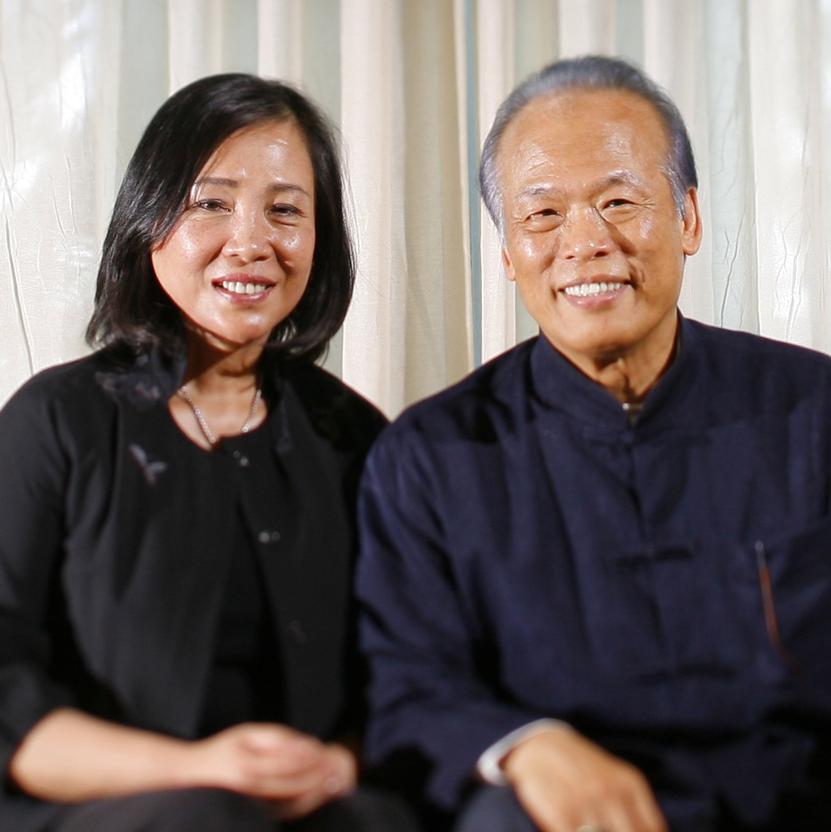 |
#26 | Chen Tei-fu | $1.9 B | 73 | herbal products |
 |
#27 | Chao Teng-hsiung | $1.8 B | 77 | real estate |
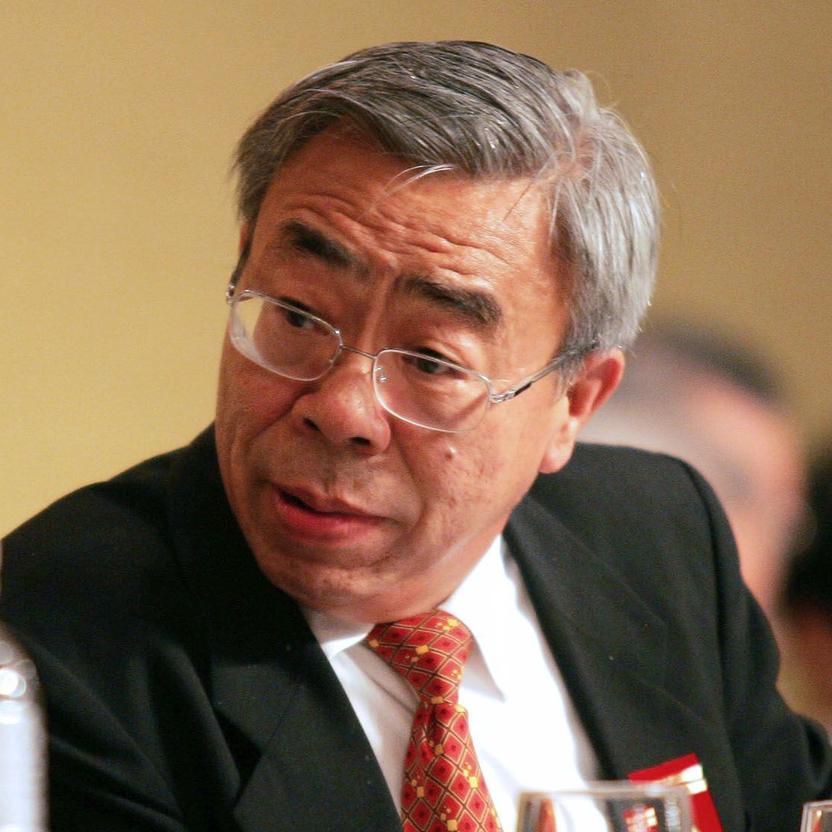 |
#28 | William & Wilfred Wang | $1.79 B | – | plastics |
 |
#29 | Shi Wen-long | $1.78 B | 93 | plastics |
 |
#30 | Luo Ming-han & Tsai-jen Lo | $1.75 B | – | tires |
 |
#31 | Xie Weitong | $1.7 B | 64 | cobalt |
 |
#32 | Chen Yung-tai | $1.67 B | 85 | real estate |
 |
#33 | Tony Chen | $1.6 B | 72 | electronics |
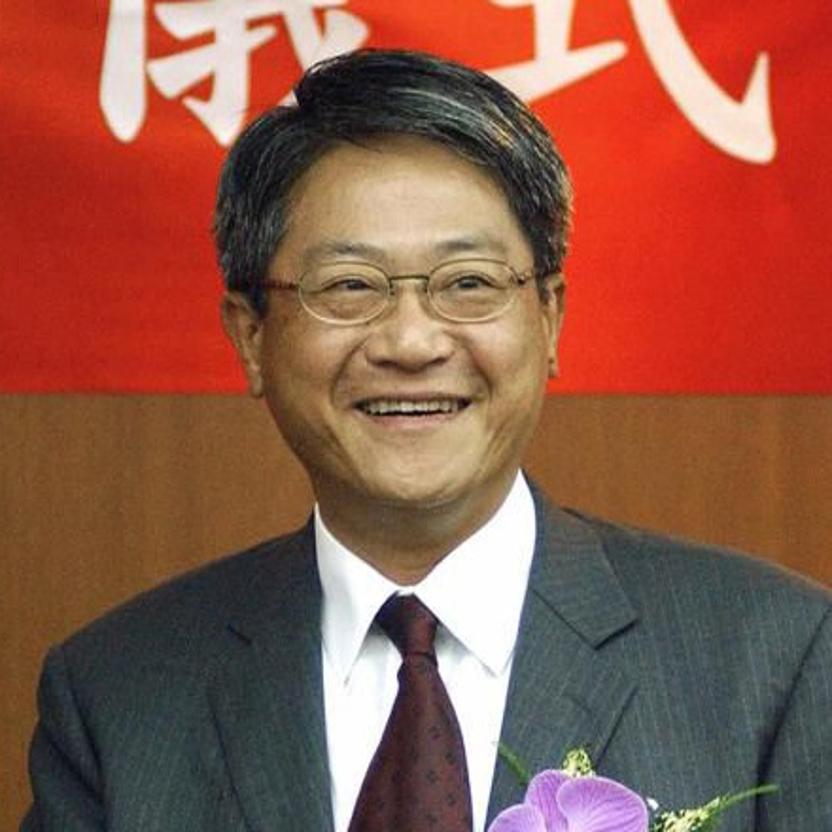 |
#34 | Thomas Wu | $1.57 B | 71 | finance |
 |
#35 | Cho Jyh-jer | $1.56 B | – | semiconductors |
 |
#36 | Archie Hwang | $1.4 B | 69 | semiconductors |
 |
#37 | Yeh Kuo-I | $1.32 B | 80 | manufacturing |
 |
#38 | Shirley Kao | $1.31 B | 65 | food & beverage retailing |
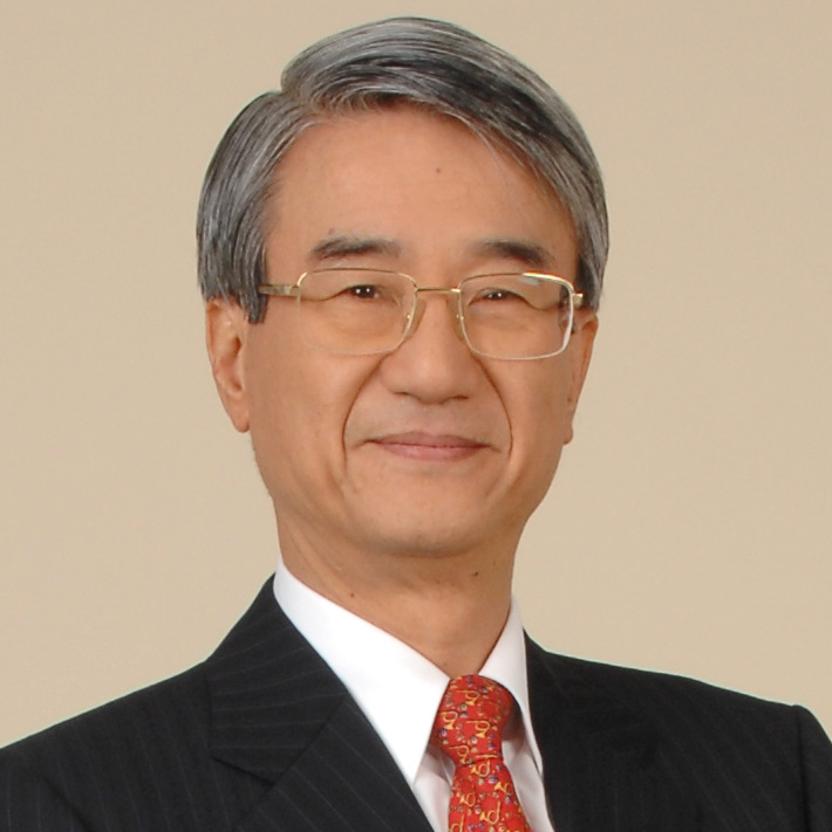 |
#39 | Eugene Wu | $1.3 B | 76 | finance |
 |
#40 | Wang Ren-sheng | $1.2 B | 89 | retail |
 |
#41 | Wu Chung-yi | $1.12 B | 66 | manufacturing |
 |
#42 | Tsai Chi-jui | $1.11 B | 81 | shoes |
 |
#43 | Allen Horng & Tien-Szu Hung | $1.1 B | – | electronics |
 |
#44 | Wu Li-gann | $1 B | 80 | electronic components |
 |
#45 | Tsao Ter-fung | $880 M | 74 | food |
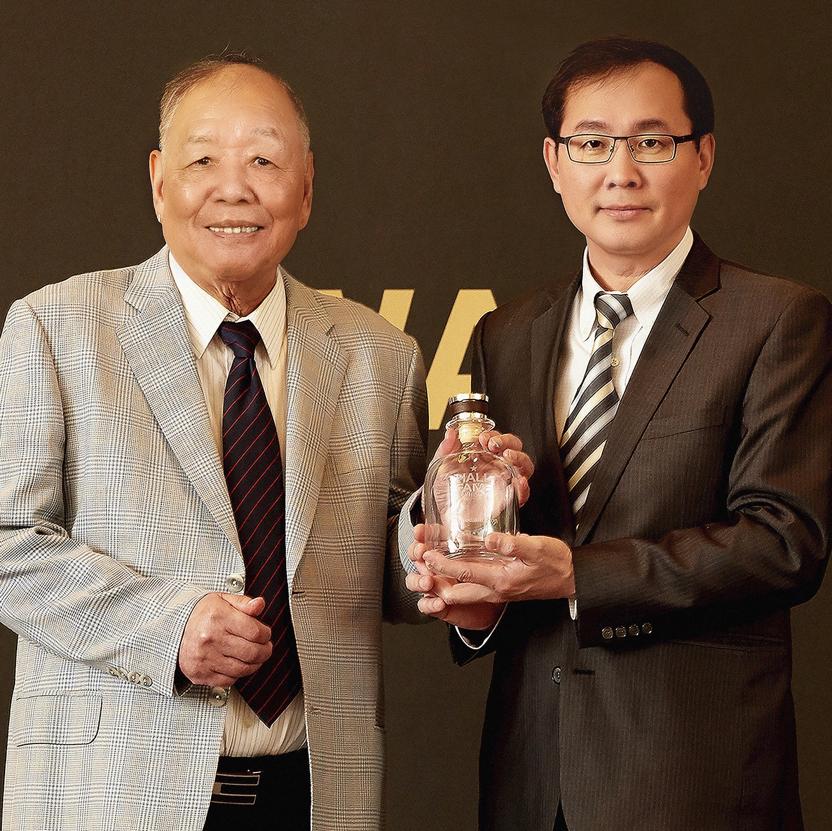 |
#46 | Lee Tien-tsai | $870 M | 83 | beverages |
 |
#47 | Quintin Wu | $840 M | – | plastic |
 |
#48 | Yeh Min-yuen | $830 M | – | cybersecurity |
 |
#49 | Huang Chung Sheng | $810 M | 64 | recycling |
 |
#50 | Ho Kuang-chi | $740 M | 58 | restaurants |
Meet their enablers that are pushing – pushing for war with China
So these billionaires are throwing money to American “think tanks” and political operatives. Where does this money go to? Who are the enablers of their desires?
So who are the enablers? Who is on the receiving ends of all this cash, money, gold, and jewels…
Neoconservatives (NeoCon)
President Donald Trump has hijacked the slogan “America First.” Once upon a time, it stood for nonintervention in foreign wars, now it stands for neocon intervention and forever war. The Trump presidency has embraced the neocon ethos of murder and “creative destruction,” based on the teachings of an arcane philosopher, Leo Strauss. The German Jewish emigre believed deception and permanent war are the foundation of the state, a state led by a sociopathic elite. Strauss believed, as Thomas Hobbes before him, that humans are inherently aggressive. He said this aggressiveness should be channeled into hostility and war against other people and nations. The neocons as of yet do not have a direct role in a Trump executive, but they are influencing the Trump administration through their foundations and think tanks, most notably the Foundation for the Defense of Democracies. Donald Trump is a man with zero guiding or animating principles, but for one: the pursuit of adulation. The neocons, or some of them at least, gave him the praise he so desperately needs after he bombed Syria, canned the Iran nuke deal, loudly and abusively confronted North Korea and its eccentric hereditary leader, and has slowly but surely moved into the camp that believes China is a threat to America. The neocons are behind the scenes pulling strings that result in forever war and a body count now surpassing a million and a half souls. -Neocons: who they are and why they matter
From HERE.
The Washington Post has a reputation as liberal and even left-of-center, although its editorial pages are dominated by neoconservatives who support the idea of American exceptionalism and the extreme operational tempo of America’s military.
In the past week, we have been treated to a series of oped essays that are supportive of expanded American military power and a political, if not military, confrontation with China.
U.S. national media generally have been lazy in their treatment of our military—pandering to the military itself and resorting to retired general officers, such as Generals David Petraeus and Jack Keane, as spokesmen. The media typically defend bloated defense budgets and fail to challenge the dangerous militarization of national security decision making.
The Washington Post is particularly supportive of a more militarized national security policy, including a possible “hot” military confrontation with China.
A Hot Shooting war with China!
A group of their oped writers, particularly Michael Gerson, David Ignatius, and George Will, argue that the United States needs to increase defense spending to “protect the country from a full range of global disasters.”
Ignatius, a long-time apologist for the Central Intelligence Agency, conceded the need for restoring the “right civilian-military alignment,” but offered former secretary of defense Robert Gates as his model because Gates “could be ruthless” with aides to Presidents George W. Bush and Barack Obama. Gates was, in fact, a captive of the uniformed military.
War in Space!
David Ignatius beats the drums for the just created U.S. Space Force, which inherits 86 space warriors graduating from the Air Force Academy. War in space would be a catastrophe, and even Air Force chief of staff General David Goldfein concedes that in every war game that involves space, we “never come out winning.”

(During my years at the National War College, China prevailed in every war game that revolved around Taiwan.)
This year’s defense budget appropriates more than $15 billion for space systems, when we should be looking for ways to demilitarize the space frontier—and not promoting another arms race. No country is as dependent economically as the United States on access to space.
War in the South China Sea!
George Will wants a modernized and more lethal Marine Corps at a time when our most dangerous adversaries have developed “high volume, extended-range missile warfare” to deal with threats from the sea. There is a reason why the Marines have not resorted to an amphibious landing since the first months of the Korean War, and that is the high risk and great difficulty of such operations.

President Harry S. Truman recognized the island-hopping success of the Marines in the Second World War, but he was right for wanting to abolish the Marine Corps at war’s end. Chinese cruise missile technology already has made it certain that U.S. naval ships, including aircraft carriers, will not be able to get close enough to the Chinese Mainland to be effective, and the idea of island-hopping against China is pure fantasy.
Invade the Chinese mainland!
Michael Gerson, the leading speechwriter for President George W. Bush’s “axis of evil” speech in 2002 that prepared the way for the invasion of Iraq, regularly refers to an “increasingly belligerent China.” He believes that Biden would do well to recruit unnamed defense and foreign policy advisers from the Bush administration. Does this mean Biden should bring back Dick Cheney, Donald Rumsfeld, Bob Gates, and Condi Rice who are responsible for policies that have brought the longest period of continuous U.S. war fighting in our history?

Gerson even believes that Biden “should be actively persuading…respected military and intelligence figures who served in the Trump administration to publicly support him.” Gerson’s usual suspects are not the answer.
An aggressive military policy against China!
On April 30, the Washington Post carried two additional opeds that endorsed an aggressive policy toward China, pointing to “superior force” as the “surest road to peace.” Nikki Haley, the U.S. ambassador to the United Nations in 2017-2018, argued that “superior Western economic, diplomatic, and military power” defeated the Soviet Union, and that the current challenge from the “Chinese Communists must be seen the same way.”

George Will believes that Joe Biden is great because he is willing to “stand up to China, and encourages Biden to “associate himself” with Senator Tom Cotton (R-AR), who endorses the conspiratorial theory regarding the responsibility of the research laboratory in Wuhan for the viral outbreak there. Cotton, the Cold War warrior, wrote in the Post on May 3 that the “Chinese Communist Party is our enemy. It aims to displace the United States as the world’s preeminent economic and military power.”
Bio-Warfare is all China’s fault!
Another Washington Post oped writer, Josh Rogin is ignoring efforts of Secretary of State Mike Pompeo to link the origins of the Covid-19 pandemic to the Wuhan laboratory. In an oped on May 1, Rogin falsely credited Pompeo with calling for “depoliticizing” the issue of China’s handling of the coronavirus pandemic. Pompeo prevented a communique at a recent G-7 meeting because he couldn’t get any of the European representatives to support his polemical accusations. Nevertheless, Rogin cited Pompeo’s specious urgings that the issue of Beijing’s handling of the virus should not become “partisan. It’s too serious a matter.”

Pompeo, the leading cheerleader in this campaign, has charged his hand-picked director of the CIA, Gina Haspel, with finding evidence implicating the research lab, according to the New York Times,. However, there is evidence to suggest that Haspel will not accommodate her old boss. Haspel has stood up to the White House on sensitive issues such as the role of Saudi Arabia’s Mohammed bin Salman in the sadistic killing of a dissident journalist; Russian hacking in the U.S. electoral process; and the origin of the Covid-19 virus.
Haspel’s intelligence analysts could inform Pompeo that it is counterproductive to maintain that the United States and its allies must keep China in “its proper place.” On the other hand, the Defense Intelligence Agency, well known for its willingness to politicize intelligence, recently changed its analytical position in order to accommodate the view that a research lab in Wuhan was the origin of the new pathogen.
Haspel has even protected the job and personal security of the CIA whistleblower whose report led directly to the impeachment process.
No time for diplomacy!
At a time when the Sino-American relationship is central to stabilizing the international arena, we are getting no discussion of the importance of mutual military disengagement in the area of the South China Sea and the need for smart diplomacy. Washington and Beijing are compatible on important strategic issues that deal with the Korean peninsula; the importance of North Korean denuclearization; and the necessity of toning down the risk-taking proclivities of Kim Jong On. In view of the continued uncertainty in North Korea, it is essential that Washington and Beijing have programmatic diplomatic discussions.
A diplomatic dialogue between Washington and Beijing on Korean issues could lead to possibilities for stabilizing the naval rivalry in the South China Sea as well as creating less friction over the issue of Taiwan.
We could send fewer guided-missile cruisers into the South China Sea; China could stop its provocative circumnavigation of Taiwan with fighters and strategic bombers. Even a modest improvement in Sino-American relations would be advantageous, making the strengthened Sino-Russian relationship less threatening to the United States.
It makes no sense for the editorial pages of the Washington Post to assist the efforts of the military-industrial complex to strengthen its case for greater defense spending by exaggerating the so-called threat from China.
Every American president from Richard Nixon to Barack Obama has endorsed a policy of engagement toward China, but Washington’s obsession with trade deficits has created the worst political and economic friction between Washington and Beijing since the first years of the Vietnam War.
And their hate-China narrative…
Why Do Editors Seek ‘Dark Sides’ Of China?

There seems to be an inflationary fascination with supposedly ‘dark sides’ of China:
- Is there a dark side to China’s high-speed rail network?
SCMP, Oct 10, 2021 - Toxic ‘996’ work culture, China’s dark side of labour exploitation
Sify, Oct 8 , 2021 - The dark side of marital leadership: Evidence from China
Science Direct, Oct 2021 - CHINA’S $28 TRILLION PROBLEM: ‘The dark side of Asia’s debt’
Business Insider, Jul 26, 2021 - Dead puppies and kittens in crates reveal the dark side of China’s mystery box trade
7news, Jun 1, 2021 - For Canadians, Two Michaels’ Ordeal Exposed ‘Dark Side of China’
Voice of America, Mar 24, 2021 - Dark side of China’s organised crime crackdown revealed in private lender case
SCMP, Mar 23, 2021 - Smile for the camera: the dark side of China’s emotion-recognition tech
Guardian, Mar 3, 2021 - Dealing with China’s Turn to the Dark Side
Quadrant, Dec 14, 2020 - Inkstone Explains: The dark side of China’s food delivery boom
Inkstone, Sep 15, 2020 - The Dark Side of China’s Idol Economies
Jing, Mar 6, 2020 - Coronavirus crisis reveals the dark side of China’s success
Nikkei Asia, Feb 6, 2020 - The Dark Side of China’s Deep Ties With South Africa
China Uncensored Jan 3, 2020 - The Dark Side of China: The Evolution of a Global Cyber Power
Intsights, 2020 - The Dark Side of Labor in China
U Denver, 2020 - ‘Dark side’ of the US-China trade war
Asia Times, Nov 26, 2019 - The dark side of China’s pet boom
China Dialogue, Nov 13, 2019 - The Dark Side to China’s Smart Cities: Everyone’s Being Watched
OZY, Jun 11, 2019 - The dark side of China’s latest rebound
Asia Times, Apr 19, 2019 - Chinese Probe Uncovers New Mystery on the Dark Side of the Moon
Live Science, Feb 1, 2019
The ‘dark sides’ of China meme did not only start after China had send the goddess Chang’e and Yutu the jade rabbit to the far side of the moon to look for the elixir of life.
There are quite a number of previous occurrences.
- The dark side of China’s Social Credit System
UnHerd, Oct 22, 2018 - The dark side of powerful China — its repression — can benefit US
The Hill, Sep 1, 2019 - The Dark Side of China’s Solar Boom
Sixth Tone, Jul 17, 2018 - The Dark Side of the Chinese Dream
The Nation, Jul 3, 2018 - Dark Side of One Child Policy of China
HubPages, Jun 7, 2018 - A Dark Side of Chinese Activism on American Campuses
Reddit, 2018 - The Dark Side of China’s Tech Boom
The Diplomat, Aug 21, 2017 - The Dark Side of China’s Economy: The World’s Wastebasket
HuffPost Jul 5, 2017 - Renewal, race, and the dark side of the Chinese dream
Today, Jun 22, 2017 - The dark side of China’s national renewal
Financial Times, Jun 11, 2017 - Torture in secret prisons: The dark side of China’s anti-corruption crackdown
CNN, Dec 6, 2016 - Female infanticide: the dark side of China’s obsession with luck
SCMP, Nov 10, 2016 - The Potential Dark Side of China’s Art and Antiquities Boom
The Diplomat, Aug 12, 2016 - The Dark Side Of China’s New ‘Post-Reform’ Era
Forbes, Jul 30, 2015 - China: The Dark Side of Growth
Yale Global, Jun 6, 2013 - The dark side of China’s foreign fishing boom–
Mongabay, Jun 2, 2016 - The dark side of China’s Kung Fu schools
DW, Feb 28, 2013 - China, the dark side
Independent, Oct 22, 2011 - The dark side of Chinese adoption
Marketplace, May 5, 2010 - The Dark Side of China Aid
NY Times, Mar 24, 2010 - The Dark Side of China’s Rise
Foreign Policy, Oct 20, 2009 - In China, dark side of adoption exposed
Boston.com, Sep 27, 2009 - The dark side of China’s Las Vegas
BBC, May 24, 2007 - The Dark Side of China’s Rise
Carnegie Endowment, Mar 1, 2006
One wonders how such ‘dark side’ and ‘weaponizing’ memes happen …
The global media is owned by only 24 people
That’s how!
A new in-depth study has revealed that just 24 companies own the majority of the world’s biggest news outlets. Tech website AddictiveTips conducted the study to find out just consolidated media companies really are in The United States, The United Kingdom and Australia. While the results not be surprising, the study gives a fascinating insight into just how little variety there really is.
Tech blog AddicitveTips have conducted an extremely in-depth and detailed study into the ownership of the world’s media outlets. Their findings show that just 24 companies own the majority of the world’s most powerful news outlets.

The Study
AddictiveTips press release states that the purpose of their study is to;
“uncover the powerful companies and CEOs who control the bulk of today’s news – and present the findings in a tangible way.”
Digital media has become the main driver of news in recent years. Hardcopy newspaper distribution is in free fall, so the battle to control the narrative has moved online.
Rather than turning on the TV at 10pm for the news, you’re more likely to be watching Vox Pops online or seeing mainstream journalists revealing their big “scoop” directly on Twitter. Although the latter has come in for criticism recently, as the “scoop culture” has led to less fact checking so as to get the accolade.
Regardless of who you go to, it is highly likely that many of the outlets you use are connected by one thing; their owner. This study shows who chair the relevant companies. For example News Corp, owners of titles such as The S*n and The Times, are chaired by Australian Robert Thomson. In reality, we all know that the true owner is Rupert Murdoch.
Needless to say, this is a well conducted and researched study.
Methodology
To determine the companies and individuals that own the top news sites in the world, AddictiveTips identified the top owners of the news sites with the most monthly traffic as of September 2019. Data on average visitor traffic for the past one to three months and the relative rank of each news site came from Alexa, an Amazon company, and market intelligence provider SimilarWeb.
They identified the owners of the top 50 news sites globally, in the United States, in the U.K., and in Australia, respectively, using financial filings, corporate press announcements, and other public sources. They then isolated the 20 companies with the most visited sites in each geography, as well as other newsworthy media companies, and identified all of the properties in their online media portfolios, as well as the name of their highest-level owners, using financial filings, corporate press announcements, and other public sources.
- For news sites that are owned by investment firms with a majority stake, the CEO or director of the investment firm was listed as the highest-level owner.
- For news sites that are owned or directly (or indirectly) controlled
by the government (as is the case of the BBC, who since 2017 has had its board members selected by the UK government), the head of government was listed as the highest-level owner.

A Changing Landscape
Several names are synonymous with media domination around the world: News Corp in the United States, the U.K., and Australia. Globo in Brazil & Yomiuri Shimbun in Japan.
While many of the oldest media conglomerates are as powerful as ever and still growing, the emergence of digital news has substantially altered the media landscape and allowed new companies to emerge as major players in the news industry.
Tech giants like Microsoft and Amazon owner Jeff Bezos, as well as telecommunications conglomerates such as Verizon and AT&T, now rank among the top owners of the world’s media.
Asset Firms
In recent years, asset management firms and private investors have increasingly bought majority stakes in legacy newspapers and have come to dominate the list of the top media owners worldwide. In April 2019, for example, private equity firm Great Hill Partners acquired the Gizmodo Media Group and The Onion, and combined their digital news assets, which include Gizmodo, Jezebel, and The A.V. Club, into a new company named G/O Media Inc.
In August 2019, American investment firm KKR purchased the largest stake in Axel Springer SE, a German media group whose assets include Business Insider and Rolling Stone.
State Controlled or Owned
A significant share of the world’s media is owned by national governments. Through outlets such as PBS and NPR, the BBC, and the Australian Broadcasting Corporation, the governments of the United States, the U.K., and Australia all have significant media holdings. State ownership of media in English-speaking countries is dwarfed, however, by the Government of China’s media holdings.
Who Owns UK News?

As can be seen above, online news media in the U.K. is still dominated by publishers of traditional print media, such as The Times, The Daily Telegraph, and The Guardian.
Tabloid newspapers such as the Daily Mail, The S*n, and the Daily Mirror have a significant online presence in Britain. Several London-based news sites, such as The Economist and the Financial Times, have substantial readership outside of the U.K.
Murdoch’s News Corp, through News Corp UK, The Daily Mail and General Trust plc own many of the largest national news sites in the U.K. This web of companies can make it confusing for some to understand ownership.
Murdoch’s UK empire includes; The Time and the S*n to name a few. The control of so many outlets by so few leads to editors at supposed competing papers actually working in unison to control how a story runs.
Regional Proxies

Through its subsidiary Local World Holdings Ltd. Reach plc owns more than five dozen regional newspapers and their corresponding websites. The mass ownership of regional newspapers by media giants has led to a steep decline in actual local reporting. Instead, outlets copy and paste an article from a sister paper and run it under a different byline. This has created a network of regional proxies all parroting the same story with no local connection.
While the hard copy papers still run a majority of local stories. their corresponding websites run clickbait titles so as to gain advertising revenue; the only thing that keeps the UK online media alive.
The Guardian is owned by the Scott Trust Limited, which it claims exists solely to control the finances of the Guardian and ensure its editorial independence.
The US Media

Online news in the United States is still dominated by publishers and broadcasters of traditional print and television news such as CNN, MSNBC, and the New York Times.
Online-only news sites that have a major presence in the U.S. include Yahoo!, Huffington Post, and Reddit. Reddit is a majorly underestimated source of news, so much so that the leaked US/UK Trade Talk Papers sat on the site for two months before being noticed.
Some of the top media owners in the U.S. have dominated the news landscape for over a century, and continue to grow in the era of digital news. The Hearst name, for example, first appeared on a newspaper masthead in 1887. Today Hearst Communications owns dozens of newspapers and magazines throughout the country, each with a significant online presence.
Advance Publications, which was founded by Samuel Irving Newhouse Sr. in 1922 and is still family-owned today, has a portfolio that includes Reddit, Vanity Fair, The New Yorker, and American City Business Journals.
However, as noted above, there have been new entries to the US news world. Amazon owner Jeff Bezos purchased the influential Wall Street Journal – WSJ, much to the annoyance of President Trump.
Disney are a major player in the US having purchased Rupert Murdoch’s 21st Century Fox in March 2019, it now holds titles such as Fox News, abc and has a stake in the above mentioned Hearst Newspaper group.
Australian News Ownership

From 1987 to 2006, Australia had specific legislation limiting foreign ownership of media companies on the continent, as well as restrictions on cross-ownership of media companies meant to preserve the diversity of news media.
Despite these restrictions, today Australia has a relatively high degree of media concentration. National online news media in Australia is essentially controlled by two companies: News Corp, through News Corp Australia, and Nine. Rural news media is largely dominated by Australian Community Media, whose portfolio includes over 170 regional newspapers and their corresponding websites.
Seven West Media also has a substantial news media portfolio that includes traditional newspapers, online-only news sites, magazines, and radio. The Conversation is one of the only major online news sites in Australia that is independently owned.
Australian media appears to have even less diversity than its UK and US counterparts.
Media Ownership Conclusions
As the concentration of online news has increased, so has public distrust in mass media. A recent Gallup poll shows that Americans remain largely mistrustful of the mass media, with just 41% currently having “a great deal” or “fair amount” of trust in newspapers, television and radio to report the news “fully, accurately and fairly.”
In the UK, media trust is poor at best. Just 32% of adults in the UK say they trust the news media at least somewhat. 48% say their news media do a good job of getting the facts right, 46% say they provide coverage independent of corporate influence and 37% say their news coverage is politically neutral. When it comes to covering important topics like immigration, 44% of British adults say that the media is doing a good job. These are not exactly glowing figures for the UK mainstream media. They don’t seem to be able to get close to 50% trust in many cases.
Owners should be asking themselves questions with results like this, but they don’t, and they won’t. The fact is, people still visit their websites and generate profits through advertising, as long as the profits keep coming, they couldn’t care less about trust levels.
That is why at least in the UK, the media and press need to be majorly overhauled. Regional outlets need given back their independence, conglomerates controlling an entire narrative needs to end and the BBC needs a complete overhaul. The number of incidents in the 2019 General Election campaign of “inaccuracies” by the BBC is alarming. They are still the most visited and viewed news platform in the UK. If they are peddling blatant lies, something obviously needs to change.
Independence in the news is at an all time low. Profits for investors take precedent over good quality news. That needs to change. Perhaps you can start by visiting supporting other Independent News sites like this one.
OK. Where are we so far.
Well, we know who wants a war with China.
We also know how they are trying to provoke one, and where they are throwing their money towards.
We also know who their enablers are; they who take that money and run the media printing presses and make policy decisions for a war.
Finally we have seen how they, in turn, manipulate the media that they control. As well as examples of the uniformity of their onslaught.
So what?
So what if America, the United States, wants to launch an “incident” or two? What’s the worst to happen? A down turn in trade? Higher prices at the gas pumps? An increase in war related movies and news? So what?
Well…
It is not going to be like that at all. It won’t be a “pretend war”, it will be a serious, gut wrenching, lethal, lethal war at your front door.

Keep in mind…
All military “war games” against China indicates the USA would lose…
…Very, very badly.
In fact, there isn’t a single war simulation, not one, that has the USA the victor or even a close draw. Each and every simulation for the last 18 years has had the United States defeated in a war with China.
- The USA has been losing simulated war games against both Russia and China.
- War games suggest the US will lose fast if it confronts China
- The US Apparently ‘Gets Its Ass Handed to It’ in War Games with China
- War games: America ‘keeps getting its ass handed to it’ by China
- US ‘Gets Its Ass Handed To It’ In Wargames
- ‘It Failed Miserably’: After Wargaming Loss, Joint Chiefs …
- The US military ‘gets its ass handed to it’ in World War 3 …
But no worries.
China is a peaceful, prosperous nation that views Taiwan as it’s brothers and sister. No matter what bullshit the main-stream Western media is throwing at you…
Xi Jinping promises peaceful Taiwan reunification
China’s President Xi Jinping said Saturday “peaceful reunification” with Taiwan “will be and can be realized”, days after Chinese warplanes made record incursions into the air defense zone of the democratically ruled island. Self-governed Taiwan, which has never formally declared independence, lives under the constant threat of invasion by China, which views the island as its territory and has vowed to one day seize it, by force if necessary. “Realising national reunification by peaceful means best serves the interests of the nation as a whole including our brethren in Taiwan,” Xi said in a speech marking the 110th anniversary of a revolution that ended millennia of imperial rule and led to the founding of the Republic of China. “Taiwan independence is the biggest obstacle to the reunification of the motherland and a serious hidden danger,” Xi warned. A large portrait of Sun Yat-sen, a Western-educated doctor who led the 1911 revolution that toppled the Qing empire, towered over the stage as Xi spoke. Sun founded the Republic of China, which remains the formal name of Taiwan, where defeated Nationalists fled after Mao Zedong’s Communist forces won the Chinese civil war in 1949 and established the People’s Republic. “The complete reunification of our country will be and can be realised,” Xi said. He also warned against foreign interference in Taiwan after a Pentagon official confirmed US special operations forces have been quietly training Taiwanese troops for months.
Did you read that?
Pretty simple.
Pretty clear.
Straightforward and direct.
Now, read how this speech was reported in the American Media. You know, the media that is controlled by only five people, and whom most are neocons…
China, Taiwan tensions spark debate inside Biden admin as Democrats push for more forceful response
CNN. From HERE.
Washington (CNN)The Biden administration is grappling with how to respond to China’s ramped-up aggression against Taiwan without accidentally starting a war, as bipartisan lawmakers pressure the President to get tougher on Beijing — and fast.

Internally, assessments differ over how imminent the threat to Taiwan really is.
The Pentagon’s Indo-Pacific Command has watched with increasing concern as China has rapidly modernized its military and improved its training with an eye to Taiwan, sources say. But State Department officials are wary of taking a more aggressive approach, and intelligence officials have seen little evidence that China is preparing to invade.
Tensions have risen sharply in the region recently, however, and administration officials were caught off guard when China’s air force dramatically ramped up its incursions into Taiwan’s air defense identification zone earlier this month.

The stakes are high for President Joe Biden, who has made human rights and democracy a key part of his foreign policy agenda but who has also been determined to keep the US out of foreign conflicts. For decades, Washington has embraced the concept of “strategic ambiguity” in dealing with Taiwan, in which the US remains deliberately vague about whether it would come to the island’s defense in the event of an attack by China.
But the recent escalation by Beijing marked a major challenge to that posture and has led some Biden administration officials and lawmakers to reconsider that approach, all as the President has been trying to pivot his foreign policy priorities to the Indo-Pacific region.

It’s also led some in Congress to ratchet up pressure on the White House to change its posture.
“The time for strategic ambiguity is long past,” said a senior Senate Democratic aide. “In light of the clear and present danger Beijing poses to Taiwan’s vibrant democracy, the United States must be crystal clear in our intent — with both our words and our actions. In our current context, ambiguity has invited miscalculation and risk, and an effective deterrence posture can only come from clarity.”
The aide added that the Senate is exploring additional steps to provide Taiwan with “the security, economic and diplomatic support essential for our new era of strategic competition.”
In response, a senior administration official said that “U.S. support for Taiwan remains strong, principled, and bipartisan and we will continue to engage with Congress on these important matters.”
Democratic Rep. Tom Malinowski, who served as the State Department’s top human rights official under the Obama administration, also favors a tougher approach, and said it would be an error to think of Xi Jinping as bluffing in his threatening rhetoric. The Chinese leader has vowed to “smash” any attempts by Taiwan to declare independence, and said in a speech this month that “the historical task of the complete reunification of the motherland must be fulfilled, and will definitely be fulfilled.”

“It is a consistent mistake of American foreign policy that we project our own pragmatic reasonableness onto others and assume that they don’t mean what they say,” Malinowski said.
Democratic Rep. Elaine Luria, a retired Navy commander, has gone even further, arguing for Congress to give more leeway to the President to launch military operations abroad to defend Taiwan if necessary.

“The legal limitations on a president’s ability to respond quickly could all but ensure a Chinese fait accompli,” Luria wrote in an October 11 Washington Post op-ed, referring to the limits imposed by the War Powers Act. “My Republican colleagues introduced the Taiwan Invasion Prevention Act in February to grant the president the authority to act against an invasion of Taiwan and prevent a fait accompli. This act is a good starting point to address a legal dilemma.”
‘Nothing suggests’ an invasion
Still, that political pressure has run up against a degree of wariness from the State Department and intelligence community. Intelligence officials have not yet seen anything to suggest that China is readying a military offensive, according to people familiar with the intelligence assessments.
“It was certainly a dramatic escalation,” said one of the people, referring to the 56 Chinese aircraft that flew into Taiwan’s defense zone on October 4, the largest-ever incursion. “But nothing suggests that China is preparing for an invasion of Taiwan.”
Officials in the State Department’s Bureau of East Asian and Pacific Affairs, meanwhile, are leery of taking a much more aggressive posture toward China over the Taiwan issue than the strategically ambiguous status quo.
Former deputy Secretary of State James Steinberg, who was dispatched by Biden to Taiwan in April as part of an unofficial delegation aimed at showing support for the island, called the current situation “very dangerous” and said that ending the strategic ambiguity policy would only embolden Beijing further.
“All bets would be off,” he said, because China would see the shift as a “fundamental breach” of the agreements in place for decades.
“It is important for us to reassure Taiwan, but there are ways to do that and to enhance deterrence without sticking our finger in Beijing’s eye,” Steinberg added.
Biden himself has long been opposed to publicly declaring definitive US support for the island democracy in the event of a Chinese attack.
“The president should not cede to Taiwan, much less to China, the ability automatically to draw us into a war across the Taiwan Strait,” then-Senator Biden wrote in a 2001 op-ed. His 24-page national security strategy devotes one vague line to Taiwan, reading: “We will support Taiwan, a leading democracy and a critical economic and security partner, in line with longstanding American commitments.”
The senior administration official emphasized that the US “has an abiding interest in peace and stability across the Taiwan Strait,” and “will continue to oppose any unilateral changes to the status quo.”
“President Biden voted for the Taiwan Relations Act himself and remains firmly committed to the principles therein,” the official said, “including that the United States will continue to assist Taiwan in maintaining a sufficient self-defense capability; and that the United States would regard any effort to determine the future of Taiwan by other than peaceful means a threat to the peace and security of the Western Pacific and of grave concern to the United States.”
Eyes on 2027
American defense officials said they see 2027 — the 100th anniversary of the People’s Liberation Army and the final year of Xi Jinping’s third presidential term — as a key year in which Beijing could try to take Taiwan by force if peaceful unification has not yet been achieved.
Taiwanese Defense Minister Chiu Kuo-cheng predicted earlier this month that China would actually have the “full ability” to invade even sooner, by 2025.
While Xi struck a more conciliatory tone in a speech last week, vowing a “peaceful reunification” with Taiwan, it is unlikely that Taiwan would ever voluntarily give up their relative autonomy; Taiwan’s foreign minister last week said the island was prepared to “fight to the end” in the event of a war with China.
One defense official noted that for China, reuniting with Taiwan “is a matter of national pride.” But Steinberg, the former deputy secretary of state, said he believes that “China would like to avoid the use of force, because it would be counterproductive and risky to its interests.”
Danny Russel, who served as Deputy Secretary of State for East Asia and Pacific Affairs until 2017, echoed that assessment.
"The Chinese foreign policy and propaganda community certainly wants to sow doubt in American resolve and convince Taiwan that America won't be there for them," he said. "But that is very different from whether Xi Jinping has the stomach for a fight with the U.S., an immensely capable nuclear power, and its allies."
That doesn’t mean things can’t spiral out of control, Steinberg cautioned. The region right now is a tinderbox, as the different sides try to leverage alliances and show off military prowess. The British-led Carrier Strike Group 21, for example, has participated in a multinational show of force in the Indo-Pacific, including through the South China Sea, most of which Beijing claims as its territorial waters.
"My personal view is that none of the sides want an [armed] confrontation, but everyone is afraid that if any side shows weakness or a lack of resolve, then the other side will misinterpret it," Steinberg said. "It's a security spiral, and there is no stability in a situation like this."
OK, so we know the twisted propaganda, what now?
Well, there are many, many issues involved. The big one, of course is the absolute collapsing of the United States, and a near panic attempt to delay and forestall the really bitter end of the “grand experiment” in American “democracy”.
But you see, China plays the “long game”. They are playing 78 moves ahead in chess while the Untied States only thinks one move at a time. And that brings up some interesting issues.
Like this one…
China is a rising leader in IC fabrication, but America wants to stop that rise…
Sharing chip info to US may force Samsung to share it to China
Sanity Check. Look at a chart to see the real picture, before we go further with this article. The USA is a very minor export destination for Korea's IC chips.

The U.S. Department of Commerce asked America's "Big 3" automakers and key industry players operating there ― including Intel, TSMC, Apple, Samsung Electronics and GlobalFoundries ― to submit their key semiconductor management-related data such as inventory levels, production targets and revenue estimates according to clients and technology development roadmaps by Nov. 8 this year.
"What I told them is, 'I don't want to have to do anything compulsory but if they don't comply, then they'll leave me no choice',"
No option but to consider ‘China factor’
No. Look at the chart up above again. China is by far the largest and most significant buyer of these chips. With the United States being a very tiny and insignificant customer. So, people (!) they are NOT "equally important".
Again. No. Unless you have the intelligence of a snail. USA is 9% China is 51% They are NOT comparable. But the brain dead readership in the West really never bothers to check the raw data. They rely on the "journalists" to do so. Blind faith; it will "kick you in the balls" unless you are careful.
"Things are becoming very complicated. However, the primary focus is that Samsung Electronics is advised not to share its classified chip data with the U.S. government. If it does that, then Samsung will be situated to submit confidential data to Beijing regarding its semiconductor business. That's a scenario I don't want to think about. Again, this is more about a matter of national security and intellectual property,"
"Washington's request for Samsung to share classified information is totally unprecedented,"
They are being forced to choose. Select the Untied States, or their nearby nuclear armed neighbor, China, where 80% of their factories lie. -MM
"Samsung can't handle this issue alone as it is too big for a private company to handle. The South Korean government needs to ask the White House and U.S. commerce department to minimize the scope of information that Samsung must share. Or Samsung Electronics and the government will need to lobby U.S. politicians on the points that it is already the top-tier foreign direct investor in the United States with large scale local employment and that it will remain as the most-trusted business partner there. The same appealing points could be applied when Samsung deals with China,"
China is the leader in military artificial intelligence (AI) technology
At least that is what the Leadership of the United States AI Technology branch thinks. He caused quite a roar a few weeks ago when he resigned and all the neocon publication went bat-shit crazy over it. Then the furor died down.
US Air Force software boss resigns: ‘Battle over AI lost to China’
Nicolas Chaillan, 37, told the Financial Times after resigning: 'We have no competing fighting chance against China in 15 to 20 years.' 'Right now, it's already a done deal – it is already over in my opinion,' he added. 'Whether it takes a war or not is kind of anecdotal.'
From HERE.
That says the former software chief of the US Air Force to the Financial Times. According to Nicolas Chaillan, there is “good reason to be angry”.
Chaillan has spent the past few years working within the armed forces on ways to improve cybersecurity. The former Air Force chief software officer told the newspaper he resigned last week in protest at the slow pace at which the military is undergoing technological transformation. He also says that he cannot see the US being surpassed by China.
Chaillan, 37, said the US will no longer be able to compete with China in 15 to 20 years. “It’s already a done race. It’s already over, in my eyes,” he told the Financial Times. Chaillan also warned that cybersecurity in some government departments is still at “kindergarten” level.
The former top official said he wants to testify before the US parliament about the Chinese cyber threat to his country within weeks. Although that spends much more money on defense than China, according to Chaillan, this is not done in an effective way. He also complained that bureaucracy is hampering necessary reforms.
According to the former software chief, technologies such as artificial intelligence are much more important for the future of the US than, for example, new jet fighters such as the F-35. He called the discussion about ethics in the development of artificial intelligence a restraining factor in the US. Companies such as Google would also be reluctant to cooperate with the military in the field of AI.
The situation in China looks very different, according to Chaillan. There, according to the expert, companies are obliged to cooperate with the authorities and “huge investments are made” without taking ethics into account.
- https://www.newsweek.com/pentagon-official-resigns-over-belief-china-has-won-ai-battle-heading-global-dominance-1637772
- https://www.rt.com/news/537132-us-china-ai-chaillan/
- https://www.businessinsider.com/pentagon-official-quit-saying-us-cybersecurity-no-match-china-2021-10
- https://www.breitbart.com/national-security/2021/10/11/pentagon-software-chief-resigns-warns-we-have-no-fighting-chance-against-china-in-a-i-wars/
China is the leader in military robotics.
All of the AI for them is mature and is used in industry inside of China. China has been producing military robots straight out of the movie “Terminator”, and they swim, fly, crawl, and walk. I’ll be you never heard about all that have you?
Well here’s some movies to get you a bit interested…

I wonder how the Western armies would feel if they confronted military robots that looked like funny fat bunny rabbits, cute attractive women, little big eyed children? I wonder how they would react to Tonka-truck sized walking grenades, robot dog bomb squads, and mini-nuke drones?

Robotic farming is a mature technology. Can you even imagine what the military has MASS PRODUCED? I know that there are robot fish that are swimming bombs, as well as all sorts of things that would rest inside your worst nightmare.

Schools of robotic fish. Some with bombs, some with sensors. All under the control of the Chinese military and swimming all over the South China Sea.

And here’s a shark robot. I wonder if it has friggin’ lasers in it’s eyes?

China has advanced anti-satellite technology
China is the leader in the rapid manufacture of nuclear weapons systems
Yah. China is the leader in manufacturing. Not only have they absorbed all the technologies needed and necessary for manufacturing, but they have developed an adjacent infrastructure to support those industries.
And it’s not just rubber ducks, hospitals, electric cars, and clothing. It also includes military systems and hardware. And we can see it. Though it is only briefly reported in the American media, China has created a formidable Naval Fleet that operates in the waters adjacent to China; the South China Sea. Unlike the United States, which spreads military project outward everywhere, China’s is concentrated next to China.
And it’s not just that. Consider the mass production of the nuclear armed MIRV ICBM the DF-41. Also known as a “scatter-gun” nuke delivery system.
The DF-41 missile has an operational range of more than 14,000 kilometers and can carry about 10 independently targetable nuclear warheads, capable of hitting anywhere on Earth, and this would make DF-41 the world's longest range missile, surpassing the range of the US LGM-30 Minuteman which has a reported range of 13,000 kilometers. Yang Chengjun, a Chinese expert on missile technology and nuclear strategy and chief scientist of quantum defense, told the Global Times that the DF-41 is Chinese fourth-generation strategic nuclear weapon and has the longest operational range among all Chinese ICBMs. "This ICBM's research and development was very successful, and its technology is very mature. During testing, there was no failure record," Yang noted. Wu Jian, editor of Defense Weekly under the Shanghai-based Xinmin Evening News, told the Global Times that the multiple transporter erector launchers of the DF-41 missile shown in the October 2019 parade proved that the People's Liberation Army had already built a massive and advanced system to support the use of this missile. "This proves that China has sufficient and reliable strategic nuclear power, and decision-makers have the confidence to show and use them to respond to any kind of nuclear threat from any country." Wu noted "No matter how advanced the missile is, it always needs a mature and comprehensive system to make sure it can accurately strike a target, which at least includes intelligence gathering, satellite surveillance, logistics, and construction of launching positions". Public data shows that DF-41 is a rival of the 6th-generation missiles of some developed countries, such as the American LGM-30 Minuteman and the Russian RT-2PM2. The Chinese missile even has an edge with regard to some technologies. The DF-41 has a range of 12,000 kilometers and a deviation of some one hundred meters. It can carry six to 10 multiple maneuverable warheads, which makes it difficult to be intercepted. The missile is 16.5 meters in length with a diameter of 2.78 meters. It can be launched from road- and rail-mobile launcher platforms, as well as silo-based launchers. China’s state-owned Global Times, on 23 January 2017, carried a report, which said the Dongfeng-41 (DF-41) missile would bring China “more respect.” The missiles that are capable of carrying 10-12 nuclear warheads were deployed near the China-Russia border, according the report, which did not go into further detail. there has been no authoritative information on whether China has a Dongfeng-41 strategic missile brigade, how many such brigades it has and where they are deployed. Two days earlier, Pingguo Ribao, a Hong Kong-based publication reported about the deployment. News of a potential deployment leaked much earlier. Song Zhongping, a Beijing-based military affairs commentator, noted that the new missiles would also have stronger penetration abilities and faster response times. "Only with these advantages can they have the chance to quickly penetrate through the missile defense system of the US." Chinese military observers have widely connected China's efforts in improving its missiles' functions with the missile defense plans of the United States. At present, the US is developing a multi-level missile defense network including the Ground-based Midcourse Defense System, Terminal High-Altitude Area Defense, and Sea-based SM-3 Missile Defense System. Song said China's development of the new missiles is aimed at maintaining military balance to protect national security, not to seek hegemony, while the US is trying to break it by being ambitious in improving military technologies in both defense and attack. China has a "no first use" policy for nuclear weapons. "The US has been building its missile defense network like a shield, which other countries' missiles cannot penetrate. This for sure stimulated other countries to sharpen their 'spears.' Otherwise, if the US has both the strongest shield and spear, they could impose an aggressive strategy on us, and we would be driven into passivity," said Song.

China can detect all American stealth aircraft
China has reportedly developed an over-the-horizon maritime early warning radar system that can detect stealth aircraft far beyond visual range, an advanced capability that could threaten US fifth-generation fighters operating in the area. -China Says New Radar Can Spot US Stealth Fighters
The solution?
Don’t put military fighters near Chinese airspace. Duh!
- China Says New Radar Can Spot US Stealth Fighters
- Look Out, America: China Can Un-Stealth U.S. Stealth
- Can China Really Track the Stealth F-35 and the F-22
- Revealed: China’s Radars Can Track America’s Stealthy F-22
- China Unveils New Radar System To Detect US Stealth Jets
- China says new radar can spot US stealth fighters
- China Deploys Anti–Stealth Radars To Track US F-35C Jets
- Passive and active multistatic radars capable of detecting …
- The Chinese Have Allegedly Developed A Quantum Radar …
- China ‘Decodes’ F-22, F-35 Puzzle; Flaunts ‘World’s First …
- Can China Reliably Bring Down the U.S. F-35 Stealth …
- Venezuelan Air Defence’s Chinese-made Radar Detects US …
- Did China Just Render America’s $1 Trillion Stealth …
- How To Detect Stealth Aircraft – The Best and Latest …
China has an enormous inactive military
The Chinese teach military discipline and warfare skills in elementary school through out elementary, middle and high school. The Pioneers is a paramilitary branch of the children that concentrates on military art to serve the nation. In middle school, all students must go through “boot camp”. And then in High School, students are carefully vetted to see what role or part of society that they can serve best.
While China has an enormous and huge military force, it is also integrated with other fighting organizations. Such as the police, the coast guard, the various civilian detachments and so on and so forth.
Were China to be attacked, it won’t be just a small percentage of the people trying to defend the cities. It would be the vast bulk of society. From 5 year old kids in kindergarten, to 80 year old great grandfathers. You do not want to shake the Chinese hornet’s nest.
China uses nuclear weapons as part of it’s defensive posture. No escalation would occur.
A Chinese Way of War. The primary goal of a commander educated in the style of the ancient Chinese military classics was a rapid, easy victory, one obtained via a variety of tactics which have a long lineage within Chinese military historiography. -A Chinese Way of War
Chinese military doctrine is to control the course of any war from the onset. They do not believe in evolving into “stages of conflict”. They believe that a war is a war. And you treat it as such. They do not make a functional distinction between military forces landing on one of their islands, or a full assault on a city. If you attack them, they will attack back.
Tactical neutron bombs
From 1977 to 1988 China developed a neutron bomb, more formally known as an enhanced radiation weapon. Neutron bombs are specialized tactical nuclear weapons (TNW) with reduced blast effects and enhanced radiation. Similar to the BMD and ASAT puzzles, this weapon appears incompatible with China’s stated nuclear doctrine. -National Interest.
Unlike the United States, China has developed systems geared to kill the enemy while leaving their buildings, automobiles, bridges and factories intact. It is called a “neutron bomb”. The West does not employ these weapons because of the political fallout.
This is a special nuclear weapon that releases radiation instead of blowing up things massively. The amount of radiation is quick, and very, very lethal and dissipates rather quickly; on the order of months.
These are also huge weapons that can totally kill everyone in a single city while leaving eh skyscrapers intact. The intended purpose is against military bases, and hardened underground sites, but they can (and in a war, would) be employed to empty out complete cities.
For instance, if used against Chicago or Atlanta, the entire city would be spared from destruction. It’s just that all the people would die a very painful death by radiation as they are on their knees vomiting out their hemorrhaging internal organs.
- FSI | CISAC – China and the Neutron Bomb
- Unlocking the Puzzle of China’s Neutron Bomb | The …
- Red China’s “Capitalist Bomb“: Inside the Chinese Neutron …
- China StRategiC PeRSPeCtiveS 8
- China Developed a Neutron Bomb That it Never Deployed. …
- China ‘has neutron bomb‘ | China | The Guardian
- China Proclaims It Designed Its Own Neutron Bomb
- The Neutron Bomb – Air Force Magazine
- Leaked Document Shows Chinese Intent to Commit Mass …
Scatter-gun swarm nukes
The American policy, since President Trump, has been to use micro-nukes to hit “high value” targets, and then use the threat of complete national nuclear annihilation if the attacked nation responds.
The Chinese policy is to use nuclear weapons from the moment they are attacked. They do not believe in escalation.
Thus any nation that attacks China, whether it is a proxy for the United States, or the actual United States; both types of nations will be hit with swarm nuke warheads. These are very deadly “shotgun” nuclear missiles that fire a barrage of nuclear bombs in clusters.
To say that they are similar to American MIRV ICBM’s is silly. And just shows how ignorant one is.
If, say, America launches a nuclear ICBM at China, the missile would contain three nuclear warheads. One for Beijing, one for Shanghai, and one for Hong Kong.
But if China launches a nuclear ICBM at the United States, it would contain ten nuclear warheads that would all be directed at a singular city. So New York and all the surrounding region would be pulverized into radioactive glass by ten, very, very large, and very, very dirty, nuclear bombs.
- Pentagon Report: China Deploys MIRV Missile
- These Massive Missiles are Making China’s Neighbor’s …
- China and MIRVed Warheads – Union of Concerned Scientists
- More Than Missiles: China Previews its New Way of War …
- China Flight Tests New Multiple-Warhead Missile
- China’s Missile Arsenal Got Some Help From an Unlikely …
- China’s New MIRV Ballistic Missile Is A Big Deal
- China’s doomsday missile packed with 10 nukes …
China is allied with Russia
- The Russia-China Friendship and Cooperation Treaty
- China and Russia’s Tight Friendship on Display in Moscow
- Russia and China have more in common than communism.
- China, Russia, North Korea, Iran Build Ties as U.N …
- Russia and China present a united front to the west – …
- Russia and China Could Soon Become More Powerful …
- The New Cold War’s Warm Friends – Foreign Policy
- Unpacking the China-Russia ‘alliance’
- Why the China – Russia Relationship Ought to Fear You
China nukes are not “precision” ordnance
America is so proud of it’s precision ordnance; the ability to pinpoint targets, and take them out surgically.
- Satellite Images Show Surgical Precision of Airstrike
- This Is Our First Look At The Marines’ Loitering Munition
- Security enterprise sends precision weapon systems
- America’s Shadowy Sword Wielding Hellfire Missile
- Countering the American Way of War
- Clever Precision Airstrike trick takes out tower campers
- Precision… Carpet Bomb!?!? US Airstrike Obliterates Entire
But the Chinese (and the Russians), while they do have the ability to lay precision target ordnance, do not employ it.
They use a wholly different strategy. They believe in carpet swath attacks. Instead of placing a singular lone high value missile on a singular lone high value target, like the United States, they instead believe in leveling the entire area into obliteration.
While the United States might plan on striking say 20 high value target in a particular city, China would calibrate a nuclear warhead and destroy the entire city indiscriminately. That way all of the targets are removed, and sure there’s a lot of collateral damage, but “tough cookies”. You all shouldn’t have fucked with them in the first place. Ya God damn morons.
This policy is completely across the board. Not just strategic, but tactical and theater as well. China will eviscerate a complete area. While the United States and it’s vassals are busy trying to attack a hamlet, a building or a structure. China just rubble’s everything.
China does not play.
Financial Times says US intelligence officials reportedly caught by surprise by Beijing’s progress on weapons; Pentagon: ‘We hold China as our number one pacing challenge’
The average number of times that China is taking the USA Pentagon by surprise is 6 times per year. (every two months) Average, of course.
This time, China has tested a new supersonic rocket, encircling the world.
China tests earth-circling, nuclear-capable hypersonic missile:
https://lnkd.in/dTDKYu3z
China Tested A Fractional Orbital Bombardment System That Uses A Hypersonic Glide Vehicle: Report
Such a capability could potentially allow China to execute a nuclear strike on any target on earth with near-impunity and very little warning.
A report from Financial Times’ Demetri Sevastopulo and Kathrin Hille states that China has tested a nuclear-capable hypersonic glide vehicle that goes into space and traverses the globe in an orbital-like fashion before making its run through the atmosphere toward its target. There would be huge implications if such a system were to be operationalized, and according to this story, which says it talked to five officials confirming the test, the U.S. government was caught totally off-guard by it.
The trial flight is said to have occurred around August, with the boost-glide vehicle being lifted into space by a Long March 2C rocket. The launch of the rocket, the 77th of its kind, was undisclosed by Beijing, while the 76th and 78th were—the latter of which occurred in late August. The Financial Times says that the tested hypersonic glide vehicle missed its target by a couple of dozen miles, but that is hardly reassuring considering the capabilities that are apparently in development here.
The foundation of this Cold War-era concept is commonly referred to as a Fractional Orbital Bombardment System, or FOBS, but instead of carrying a traditional nuclear-armed reentry vehicle, this Chinese system would carry a hypersonic glide vehicle that would possess immense kinetic energy upon reentry. As such, it could make a very long maneuvering flight through the atmosphere at very high speeds to its target.
The FOBS concept has long been a concern because of its potential to bypass not just missile defenses, but even many early warning capabilities. Compared to a traditional intercontinental ballistic missile (ICBM), a FOBS can execute the same strikes but from highly unpredictable vectors. Range limitations also become a non-factor and the timing of an inbound strike is also far less predictable. But at least with a traditional FOBS ballistic missile system, some sort of projections could be made if the mid-course “orbital” vehicle can be tracked, although that could still be a real challenge.
That is not the case at all with a hybrid design like the one being claimed to have been tested here, which would be totally unpredictable.
The maneuvering hypersonic glide vehicle, descending from high-altitude at extreme speed, could travel thousands of miles to its target, which can be totally offset from a normal ballistic track. Complicating things more, these systems can attack from the south pole, not just the north where most of America’s ballistic missile early warning, tracking, and defensive apparatus is focused. Intercepting such a system would also be very challenging, especially considering U.S. mid-course intercept capabilities are focused on traditional ballistic missile flight profiles, which fly more of a parabolic trajectory and have generally known ranges of each stage of flight.
With a glide vehicle end-game delivery system paired with a FOBS, its vehicles can enter the atmosphere beyond the range of an interceptor’s exo-atmospheric mid-course kill envelope, with the glide vehicle weaving its way through the atmosphere to its final target. Traditional surface-based radar systems’ line of sight is also significantly reduced as the hypersonic glide vehicle travels in the atmosphere. Paired with the extreme speeds involved, this can make these systems nearly useless at providing any details regarding the impending attack.
Hypersonic glide vehicles themselves are also very tough to kill with no real defense against them available at this time. Elaborate defensive concepts are in the works, but their effectiveness will depend on just how fast these vehicles are traveling, their maneuverability, density in numbers, what third-party sensors are available to help in generating an engagement solution, and more. A hypersonic glide vehicle with the kinetic energy in its favor from an orbital-like delivery would likely be the very hardest to kill.
As we have repeatedly noted, the Financial Times also recognized the eyebrow-raising comments by U.S. Department of Defense officials recently on potential “non-traditional” delivery systems that could bypass America’s strategic defenses:
Last month, Frank Kendall, US air force secretary, hinted that Beijing was developing a new weapon. He said China had made huge advances, including the “potential for global strikes . . . from space”. He declined to provide details, but suggested that China was developing something akin to the “Fractional Orbital Bombardment System” that the USSR deployed for part of the Cold War, before abandoning it.“ If you use that kind of an approach, you don’t have to use a traditional ICBM trajectory. It’s a way to avoid defenses and missile warning systems,” said Kendall. In August, General Glen VanHerck, head of North American Aerospace Defense Command, told a conference that China had “recently demonstrated very advanced hypersonic glide vehicle capabilities”. He warned that the Chinese capability would “provide significant challenges to my Norad capability to provide threat warning and attack assessment”.
There is no shortage of concerns about China’s nuclear buildup within the DoD, and like Moscow, it’s only logical that Beijing would invest in delivery systems that circumvent U.S. early warning and defensive capabilities. The idea that at least some of the hundreds of supposed silos out in the Chinese desert being built to house new ballistic missiles could one day be armed with a weapon like this is very concerning. It also could be yet another major driver behind the Pentagon’s push to deploy a whole new space-based early warning and tracking system for hypersonic and ballistic missiles, including one capable of “cold layer” tracking of missiles in their midcourse stage of flight.
That layer would be absolutely essential in trying to defend against a FOBS, that is if a defense at all is actually feasible or even strategically sound. We are not talking about a rogue state here with a few advanced ballistic missiles. China would be able to deploy dozens or even hundreds of these at once. At a certain point, kinetic defenses against such a capability become a losing proposition and a very costly one at that.
Still, this was an early test aboard a full-on rocket used for traditional space access missions. It will take China some time to perfect such a system and package it in a quickly deployable militarized configuration. Major thermal and ablative issues also must be overcome, among others, but it’s not like China hasn’t been working diligently in the hypersonic boost-glide vehicle realm for many years.
Regardless, if this report ends up being fully accurate, one thing is likely: New calls for hugely expensive missile defense capabilities will be ringing loud and often on Capitol Hill, as well as demands to do whatever possible to bring China to the bargaining table in hopes of obtaining some type of strategic arms limitation treaty.
We will continue to update this story as more emerges, but for now, make sure you read the Financial Times’ excellent original report here.

Simon Black Comments
By the late the fifth century BC, after decades of war with its chief rival Sparta, the ancient Greek city-state of Athens was desperate for peace.
They wanted a decisive victory to end the war once and for all. So the citizens gathered together in their public assembly– essentially a democratic mob of 6,000 people– and voted to build a new, costly fleet of ships.
The strategy worked. And their new armada vanquished the Spartan navy in the Battle of the Arginusae Islands in 406 BC.
Sparta was on the ropes, and the Assembly cheered when news of their fleet’s victory reached Athens.
But then the Assembly found out that 25 of the 150 ships had been sunk by the Spartans, and that the Athenian crews of those 25 sunken ships had drowned in a storm.
The Assembly suddenly became furious, crying that the souls of those drowned sailors would wander purgatory for all of eternity because they didn’t have a proper burial.
So then the Athenian mob voted to execute eight of their top military commanders; the very same generals and admirals who had just won the battle and been called heroes, were now being put to death.
Socrates was one of the lone voices of dissent; yet the death sentences were still carried out despite his protest.
Then, only a few days later, the Athenian Assembly had a change of heart. The mob realized that they shouldn’t have executed their military commanders, so they then voted to execute the people within the Assembly who had proposed the executions to begin with.
During this insane dumpster fire of ancient democracy, Spartan leaders approached Athens with a peace deal, offering to end the war once and for all.
This was the entire reason that Athens had built a new fleet. They just wanted peace.
But they were so distracted by infighting and arguing about who to execute next, and who to blame, that the Assembly rejected Sparta’s peace offering.
Yet Athens’ military was now led by inexperienced admirals and generals, since they had just executed their best commanders. And Sparta quickly seized the advantage.
Within a few months the Spartan navy was ravaging Athenian territory, and soon laying siege to Athens itself. The war finally ended in 404 BC with Athens losing all sovereignty and falling under complete control of the Spartan Empire.
As the old saying goes, history doesn’t necessarily repeat. But it certainly rhymes. And I was thinking about this particular episode recently when it was reported earlier this week that China has just successfully tested its first nuclear-capable hypersonic missile.
In case you don’t geek out on military strategy like I do, suffice it to say that this is a huge deal, not just for the United States, but for the entire world.
For the past several decades, the United States has boasted the strongest, most technologically advanced military in the world.
And it would be foolish to think that this military strength hasn’t substantially contributed to America’s geopolitical and economic power.
The United States Marine Corps is essentially the biggest derivatives contract in the world. It’s the US government’s ultimate hedge, enabling it wage trade wars, sanction foreign banks, and bully anyone it wants into following US regulations.
The US military is even part of the reason why the dollar is still the world’s reserve currency, despite the US government being the largest debtor that has ever existed in the history of the world.
The US government, and the US economy, both derive substantial benefit from America’s military power.
And this is why China’s rapid military development is such a big deal.
China could destroy the United States in cyberwarfare. That’s pretty much a foregone conclusion. I mean… there are still system within the US Defense Department that use 5 ¼ inch floppy disks.
But even in conventional warfare, China is gaining rapidly. The Chinese Navy already the world’s largest fleet. And this is important because one of the biggest roles of a modern navy is to project military firepower over great distances.
China is investing heavily in this capability, feverishly building new ships and developing new technology.
It has massive stockpiles of cruise missiles, most of which have larger payloads and longer range than comparable US weaponry.
This week’s hypersonic missile launch is merely the latest proof; it’s technology that the US cannot counteract either, given that hypersonic missiles are more likely to be able to evade missile defense systems.
The Chinese wasted no time gloating their achievement, calling the launch “a new blow to the US’s mentality of strategic superiority. . .”
You’d think this would be a massive wake-up call to the US federal government.
The balance of power is shifting right in front of their very eyes.
Yet take a look at their priorities– spending trillions of dollars on ‘equity’ and ‘social justice’, which they claim will supposedly “cost nothing”.
They’re busy directing federal resources to target parents who are angry over the way their children are being educated.
They’re pushing people out of government service, whether through mandates, or through ideological purges to weed out those with conservative beliefs.
As the Center for Military Readiness reports, US Special Operations Command “intends to elevate diversity, inclusion, and equity above mission effectiveness and overall readiness.”
In fact a leaked Special Operations Command planning document states at least 12 times over twenty pages that “diversity and inclusion are operational imperatives” even though they provide no support to back up this assertion.
If that doesn’t freak you out, check out how certain medical schools are turning into orwellian nightmares where professors and other teachers are literally afraid to say “pregnant woman”.
The Defense Department is exploring racial quotas in its promotion criteria. They’re planning to reduce physical fitness standards.
And military recruiting advertisements (along with those of the Central Intelligence Agency) are now focused on LGBTQRSTUVWXYZ diversity goals.
This behavior is so counterproductive that even the ancient Athenian assembly would stand in awe at its destructive stupidity.
American military recruitment advertisements compared to Russia and China
The stark contrast between the U.S. military’s woke recruitment ads and Russia and China’s impressive and menacing recruitment videos have people on social media taking notice. Russia’s video from 2017 shows a man compelled by a sense of national pride to serve in the military, where he is then seen subjected to rigorous and intensive training. In China, the advertisements focus on family, community, country and the need to defend and participate in it for the maintenance of social order, while in America the military recruits in support of gay and LGBT rights and Climate Change.
- We’re Screwed: Compare Russia & China’s Badass Military …
- The crazy difference between current military recruitment …
- Viral military recruitment video Russia VS USA (+ China)
- Military Recruitment Ads – China vs Russia vs USA on Vimeo
- Army Recruitment Ads: China vs Russia vs USA – …
- We’re Screwed: Watch US vs. Russia Military Recruitment …
- Video Comparing Russian Army vs U.S. Army Ads Viewed …
Oh, and this just came in…
I just received this urgent message.
China has urged its citizens to keep physical goods and not paper money.
There will be a huge round of inflation as the US, Japan, UK, Sweden, etc, are printing more and more money.
So the Chinese are planning not to accept USD but only their RMB for payments,
RECEIVED THIS CHINESE ARTICLE FROM CONTACTS IN GUANGZHOU... This is an article circulating within China. It advises people to focus on buying Chinese items, and durable goods, and refrain from buying or trading in the West with anything other than other durable goods, or the RMB.
The coronavirus, and more precisely the handling of it, has been a disaster in the Western nations. As such. their solution to the economic impact of the botched handling of the pandemic caused an acceleration in the worthlessness of the currency.-MM
Use of the USD is no longer sustainable or advised. -MM
Due to coronavirus, all normal international actions has been impacted. Those holding currency in the nations that have not been able to successfully manage the pandemic, has seen their currency depreciate. -MM
In trading with the West, it is important to note that all the currency that they use will soon become absolutely worthless. You can measure the future of the value of the currency by the economic turmoil caused by the coronavirus. -MM
Now, the Chinese people are put on warning. They must start to make arrangements to barter, or use the RMB in transactions. It is highly possible that wealth will start to be lost was inflation eats away at the value of the USD. -MM
China is making this announcement along with Russia. It is expected that the rest of SE Asia will follow. -MM
Exchanging physical, substantive items in exchange for paper, plastic, or other non-durable items; items that are subject to the whims of politics, and their irrational actions, is a fool. -MM
This is common knowledge. No surprises here. -MM
If you trade with foreign nations and accept the USD in exchange for the products you make, you are taking a huge risk. China urges all nations to accept other means of payment; stable means, where possible. -MM
China is laying down the line. No. Not only will China not buy up any American or Western debt, but that it will now start to insist in hard durable payment schemes for all items made in China. If you want iPhones, for example, then you should use RMB, or barter with an equivalent amount of beef, wine, or wheat. -MM
The Big Giant has finally woken up. -MM
This is all reasonable. -MM
That's putting it mildly. When you couple the realization that all this fake money is then being used to attack, and demonize China; the source from whence the value is derived. -MM
A final warning
As if that isn’t enough to convince you, keep in mind that the US military is pretty much a “paper tiger“. Latest eg. :A phone call threat plus a shooter is enough to shut down an entire United States military complex.
You do not want to fuck with Asia. You have no fucking idea what your world will end up looking like. VIDEO.
Do you want more?
You can find more articles related to this in my latest index; A New Beginning. And in it are elements of the old, some elements regarding the transition, and some elements that look towards the future.
New Beginnings.
Articles & Links
Master Index.
- You can start reading the articles by going HERE.
- You can visit the Index Page HERE to explore by article subject.
- You can also ask the author some questions. You can go HERE to find out how to go about this.
- You can find out more about the author HERE.
- If you have concerns or complaints, you can go HERE.
- If you want to make a donation, you can go HERE.








